Special Report
50 Most Popular Restaurants That Won’t Reopen After the Pandemic
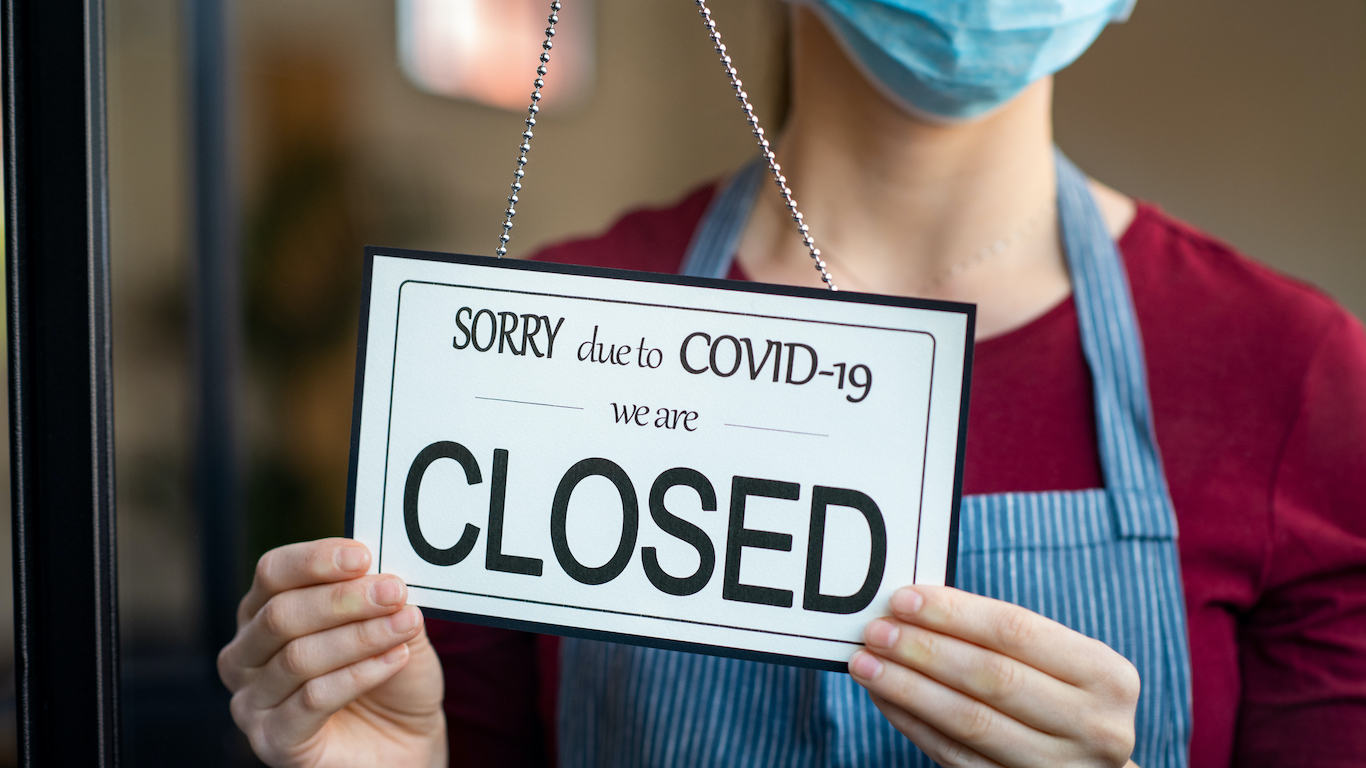
Published:
Last Updated:

The outlook continues to look bleak for the American food service industry. Restaurants across the country have endured mandated closings (supposedly temporary, but often dragging on many months) followed by restrictions on seating capacity when they did reopen. To make matters worse, there are a number of states where recently opened bars and dining rooms are closing again.
Then there’s the matter of consumer confidence. Studies have shown that most Americans still aren’t comfortable returning to restaurants and are especially leery of those that offer only indoor seating (which, in some states, will likely be a majority when the weather turns colder). And some diners dislike the mask-wearing requirements and would probably rather stay home than go out with their faces covered. (These are 21 restaurant and supermarket chains that require their customers to wear masks.)
As if all that weren’t bad enough, other factors have also had a devastating impact on the restaurant business. Hurricanes in the Southeast and widespread nonstop wildfires up and down the West Coast have driven potential customers out of their communities and sometimes physically destroyed eating places. Civil unrest in cities across the nation has kept would-be diners out of some urban centers.
For different reasons, almost no restaurant in America is currently able to function at 75% seating capacity. But that’s the percentage needed for most establishments to be profitable, according to an infographic devoted to the subject of restaurant recovery published by the restaurant technology and consulting company OneDine.
The National Restaurant Association (NRA) just reported that nearly one in six, or roughly 100,000 restaurants around America have already closed permanently or for the foreseeable future. Things are particularly bad in Massachusetts, according to the Boston Herald, where the figure is closer to one in five.
For many restaurateurs, there’s no relief in sight. A nationwide survey of 418 restaurant operators conducted by Coca-Cola this summer found that only 45% were confident that they’d still be in business in a year’s time. The NRA projects that the industry will suffer losses of $240 billion in sales by the end of 2020.
No segment of the business seems immune. Famous chains like Chuck E. Cheese and California Pizza Kitchen are in bankruptcy, as is the massive Luby’s operation chain in Texas. But marquee names like Wolfgang Puck, José Andrés, and Thomas Keller have been forced to shut down bustling restaurants of their own as well.
Click here for the 50 most popular restaurants that won’t reopen after the pandemic.
Since early May, 24/7 Tempo has tracked permanent restaurant closings around the country, updating our reporting twice a month. This latest version of the list covers a wide range of popular places in 20 states and the District of Columbia. In this age of uncertainty — for restaurants as for just about everything else — one thing is certain: More restaurants will join this regrettable roster daily.
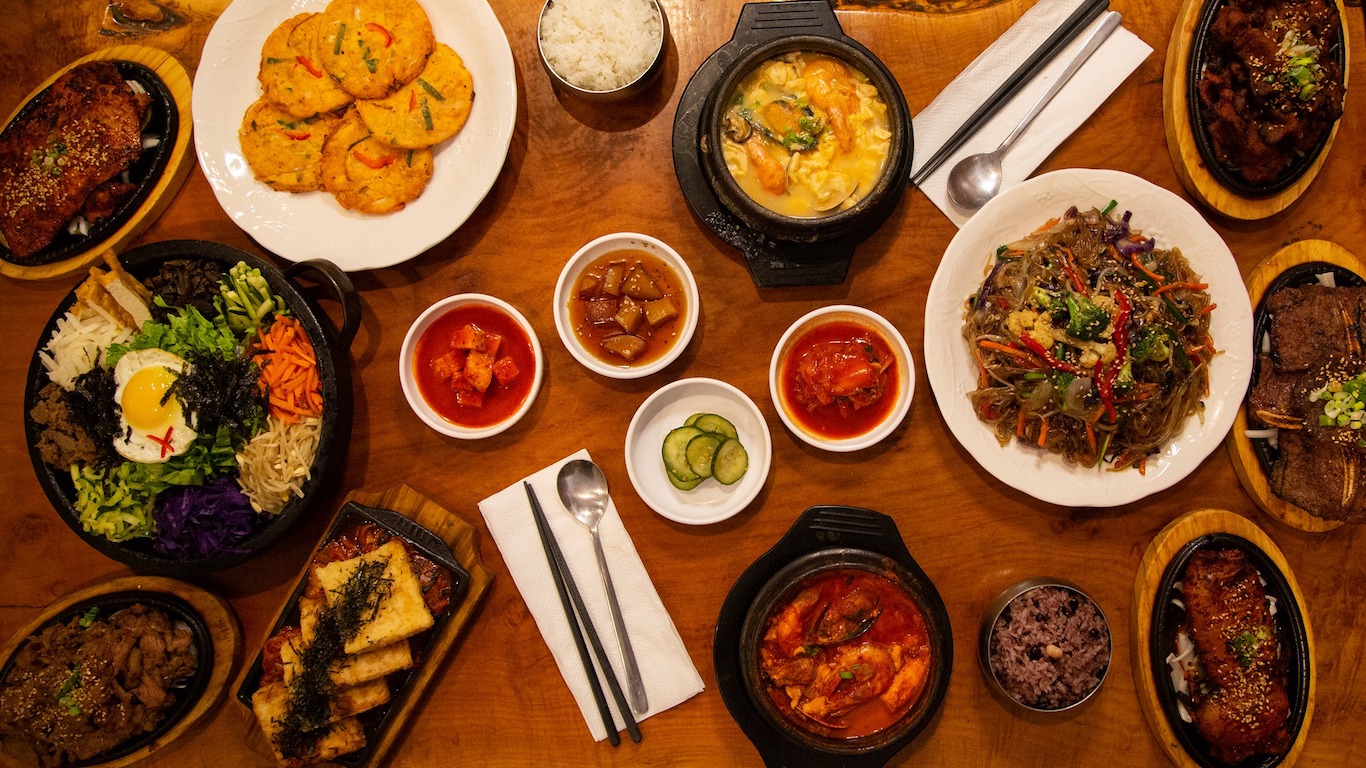
California: Beverly Soon Tofu
> Location: Los Angeles
A fixture in L.A.’s vast Koreatown food scene since 1986, this is also one of the few establishments specializing in variations on sundubu jjigae, a spicy soft tofu stew with kimchi. Food truck pioneer Roy Choi called it one of his favorite restaurants, and the late Anthony Bourdain featured it on “Parts Unknown.” A Facebook post on Sept. 7 announced that “After consideration of all options to remain open during this pandemic, we are sad to share with our customers and community that after 34 years in business, we have decided to close permanently at this location.” The last day of service will be Sept. 20. (A newer location nearby will remain open.)
[in-text-ad]
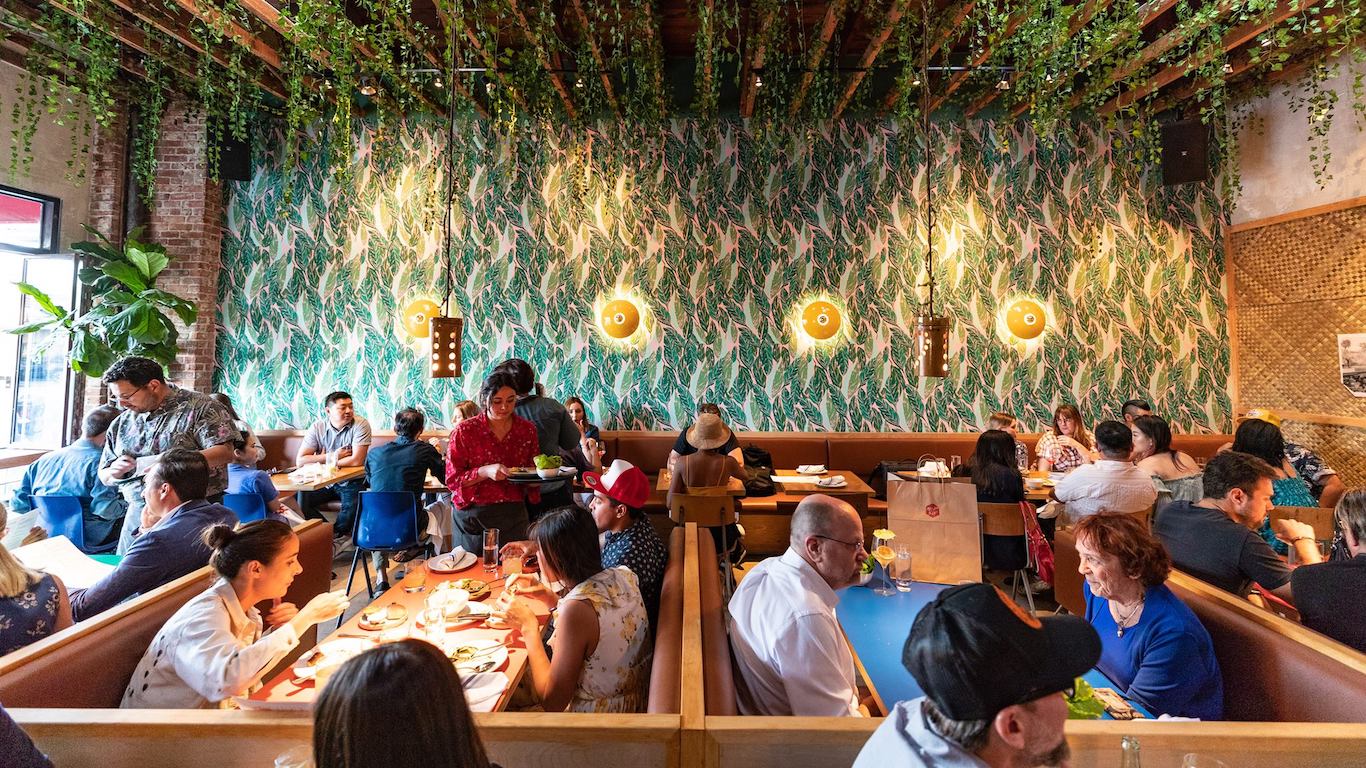
California: Ma’am Sir
> Location: Los Angeles
Filipino food is a burgeoning trend in Los Angeles these days, and this was one of the genre’s best and most highly praised restaurants — recipient of a rave review in the L.A. Times and named to the Eater Essential 38 for Los Angeles. Unfortunately, Ma’am Sir closed for good in late August. “Thank you to all,” wrote owner Charles Olalia in an Instagram post directed to his fans. “It was a pleasure to have welcomed you once upon a time. There will come a time when I can welcome you again.”
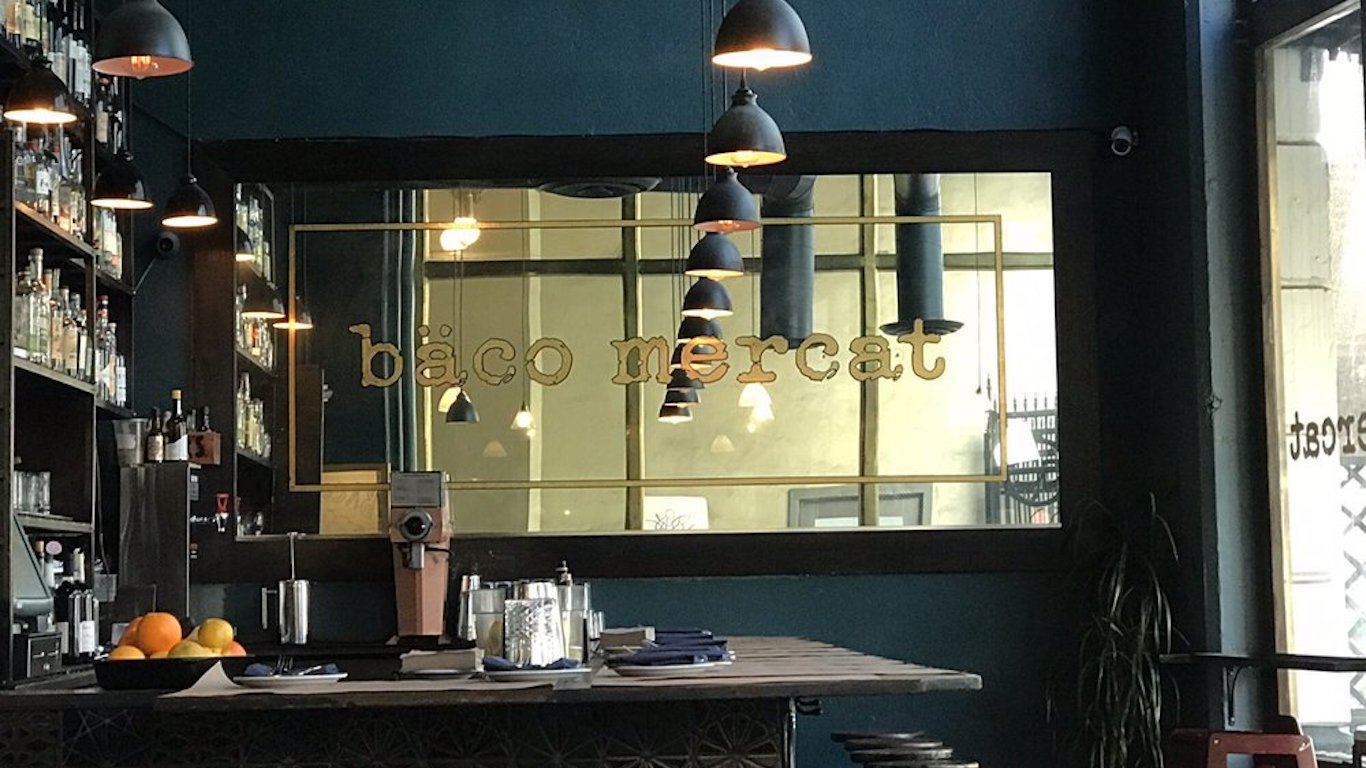
California: Bäco Mercat
> Location: Los Angeles
In what Time Out described as “a shocking turn,” noted Los Angeles chef-restaurateur Josef Centeno — whose other establishments, Orsa and Winston, has a Michelin star — closed Bäco Mercat early in Aug. Known for its flatbread sandwiches, fried chicken, and seasonal small plates, the establishment is credited with having kicked off the lively downtown L.A. dining scene when it opened in 2011. “I’m not one for dwelling too much on anything,” wrote Centeno philosophically in a statement on the restaurant’s Instagram page when he announced its closing. “I know that there is always a beginning, a middle and an end.”
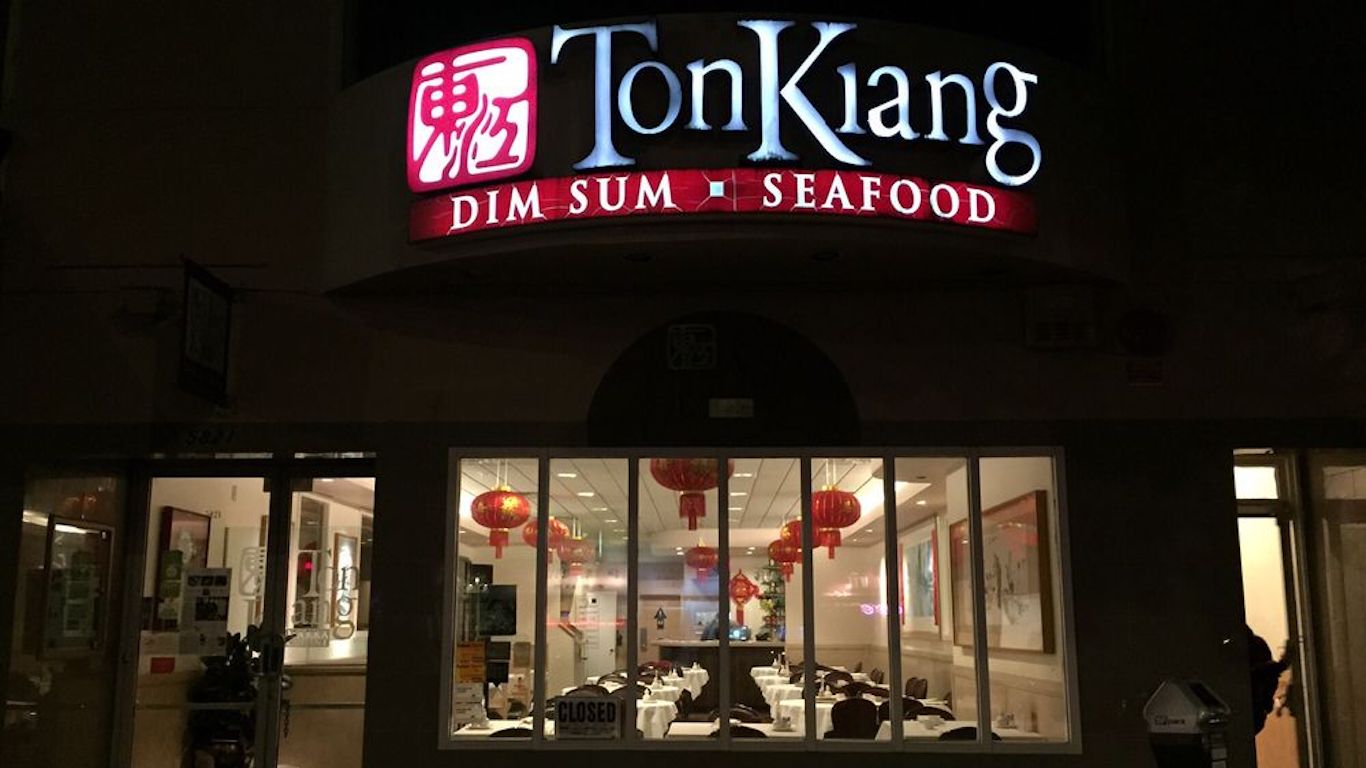
California: Ton Kiang
> Location: San Francisco
“Thank you for your years of support,” read a hand-written sign sitting on a table at this 42-year-old Richmond district dim sum parlor. “We will be closed for good on Aug. 30, Sunday at 7:30 PM.” Neither the sign nor a longer statement posted in the window of the place specifically cited COVID-19 as the reason for closing, but weekend business had declined, and the restaurant found it difficult to hire and keep staff, according to Eater.
[in-text-ad-2]
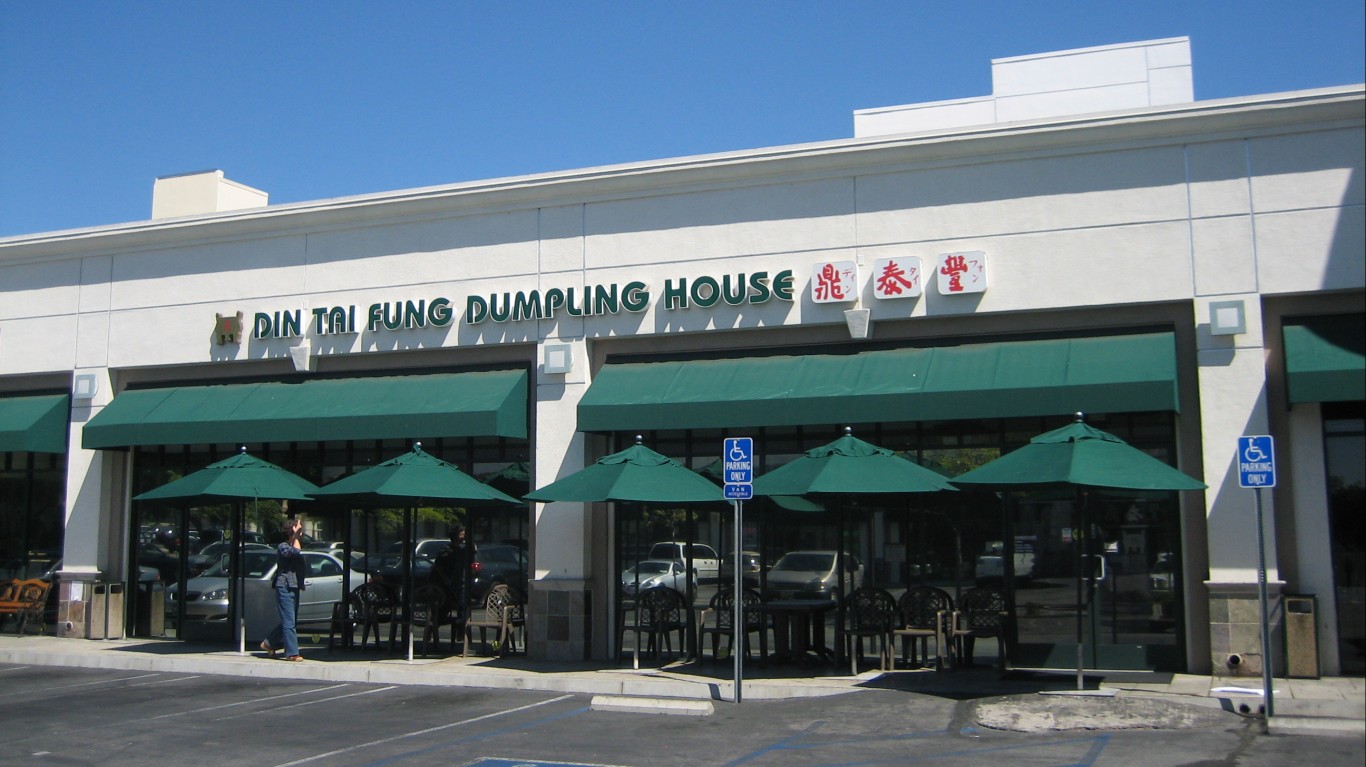
California: Din Tai Fung
> Location: Arcadia
This highly acclaimed international dumpling and noodle house chain, founded in Taiwan in 1972, opened this, its first North American location, in 2000. Now it’s gone. A post on the restaurant’s Instagram page reads, “As a result of the current economic climate, we have made the difficult decision to permanently close…” Southern Californians will still be able to enjoy Din Tai Fung’s famous xiao long bao — better known as soup dumplings — and other specialties at the chain’s Century City and Santa Anita locations.
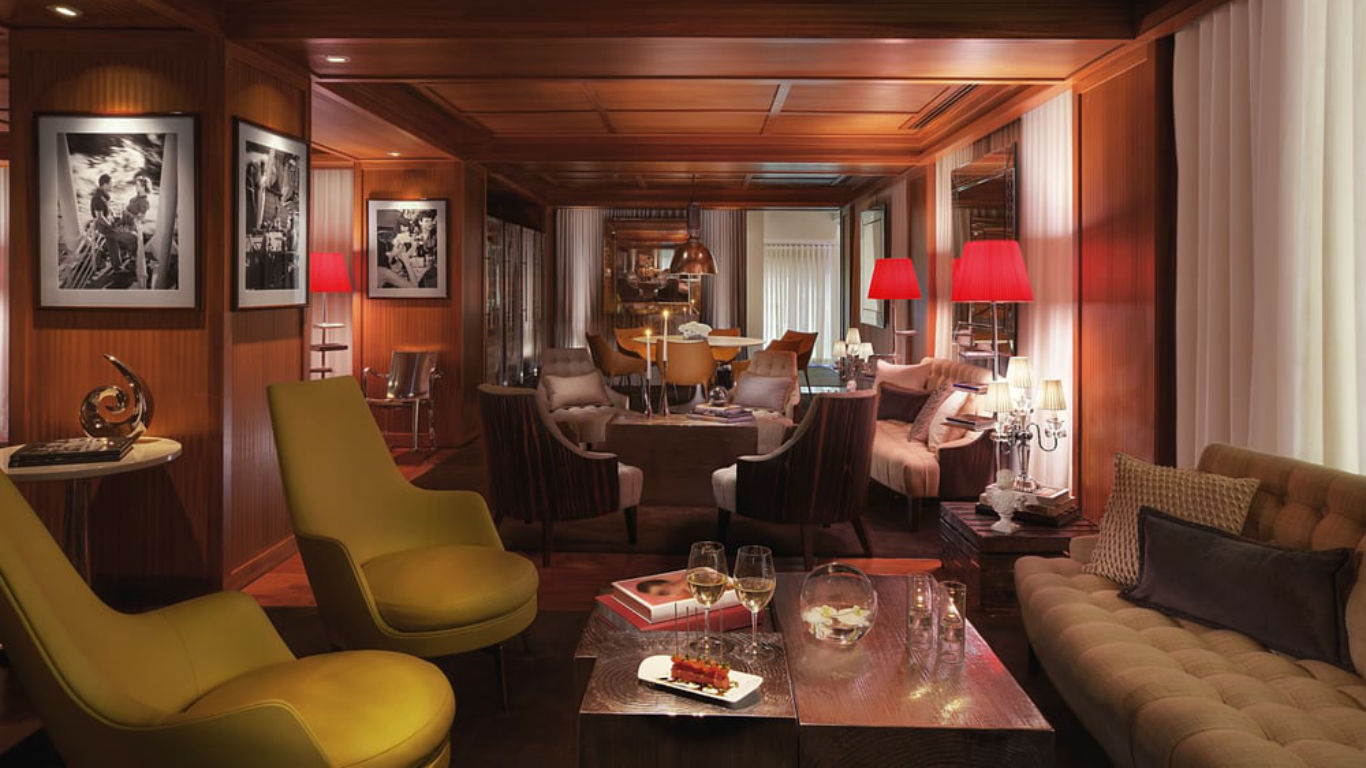
California: The Bazaar by José Andrés and Somni
> Location: Los Angeles
High-profile chef-restaurateur and humanitarian José Andrés announced in early August that he was shuttering his Spanish-inspired dining room The Bazaar in the SLS Beverly Hills hotel. Though the closing comes amidst legal actions between the chef’s ThinkFoodGroup and the hotel owners that aren’t directly related to the pandemic, the group’s statement on the closure blames the hotel company for “alleging defaults that were obviously incapable of being cured while our employees lived through shelter-in-place orders.” Also closed is Somni, the 10-seat avant-garde tasting-menu counter operation, nestled behind The Bazaar — one of the few L.A. restaurants with two Michelin stars.
[in-text-ad]
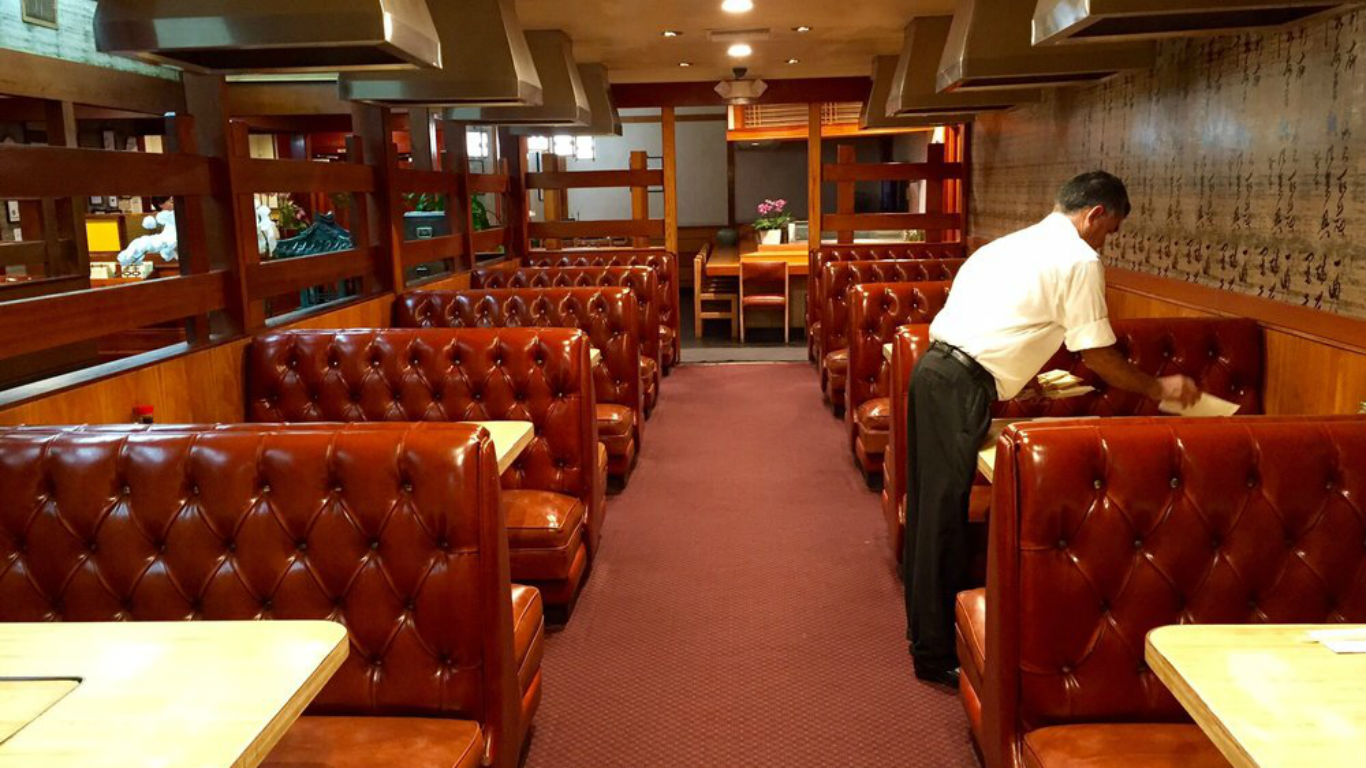
California: Dong Il Jang
> Location: Los Angeles
Los Angeles is home to the world’s largest Korean community outside Korea itself, and its ever-growing Koreatown neighborhood has long been famous for its many restaurants, serving both traditional and modern Korean fare. Dong Il Jang was one of the oldest of these, launched 41 years ago. In announcing on Instagram that this year was their last, the owners wrote, “Over the four decades we have been through many difficult situations but the Covid-19 pandemic has made it very difficult for us to survive …”
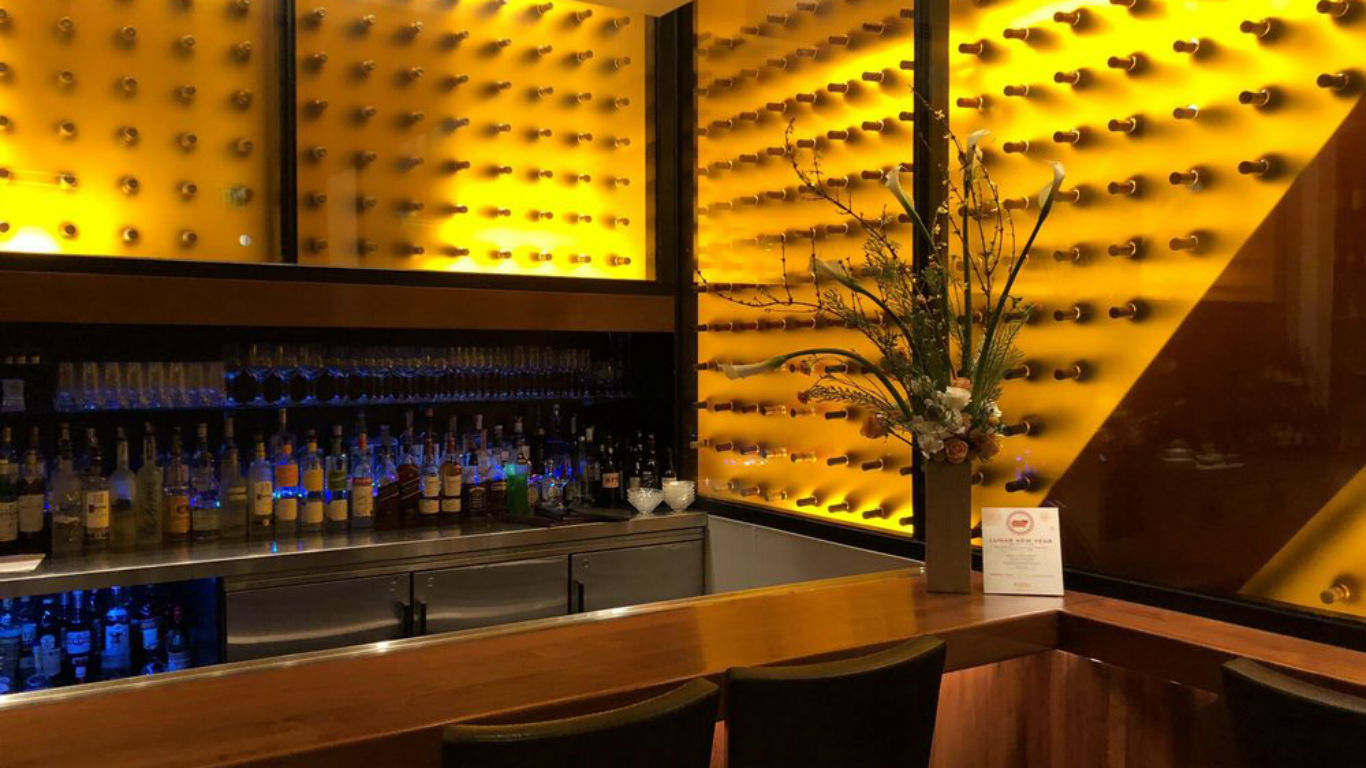
California: Patina
> Location: Los Angeles
German-born, French-trained chef Joachim Splichal opened the original Patina in Hollywood in 1989, moving it downtown to the Frank Gehry-designed Walt Disney Concert Center in 2003. Patina eventually spawned an empire of more than 50 other restaurants in five states and Japan, and while Splichal no longer owns the Patina Restaurant Group, the original had remained his flagship. Though no official announcement of its closing has been made, employees recently received letters of termination, effective Aug. 15, and the restaurant no longer appears on the group website.
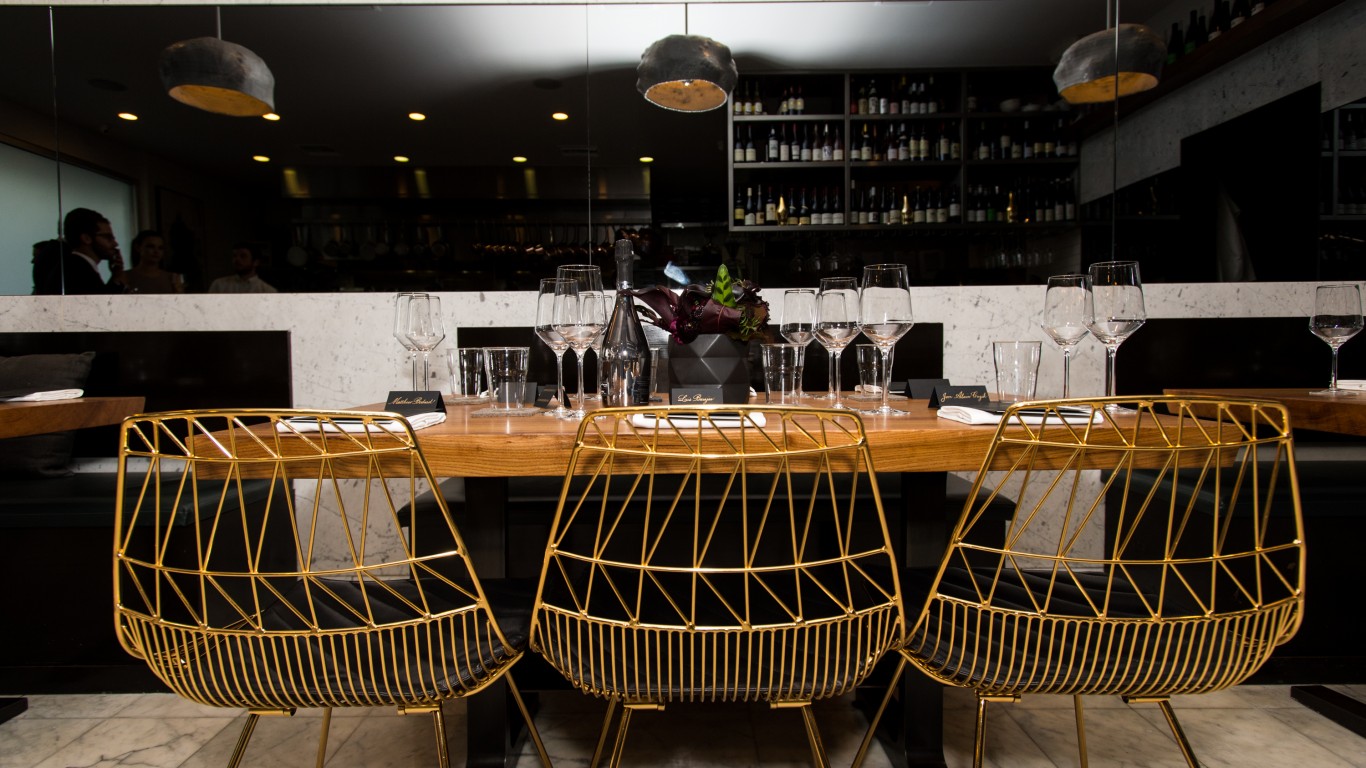
California: Trois Mec
> Location: Los Angeles
According to the New York Times, the proprietors of this hole-in-the-wall tasting-menu restaurant — French chef Ludo Lefebvre and his American colleagues Jon Shook and Vinny Dotolo (of the popular Animal and Son of a Gun) — “are surely among the most influential restaurateurs” in L.A. Unfortunately, neither their prominence nor their Michelin star helped them survive the pandemic. “Covid-19 has changed everything,” Lefebvre wrote on his Instagram page, adding, “I had to accept the reality that it was time to let the idea of reopening Trois Mec go.”
[in-text-ad-2]
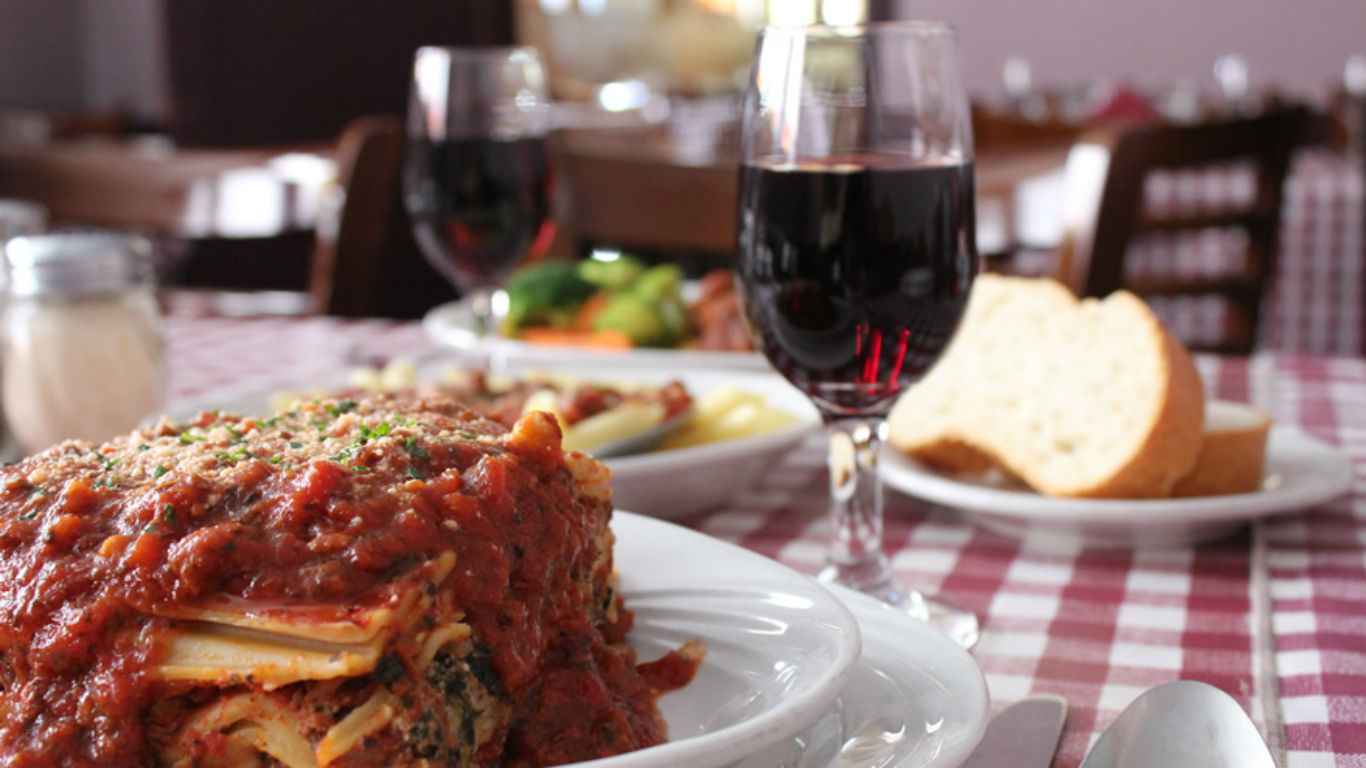
California: Español Italian
> Location: Sacramento
Español Italian Restaurant — the oldest continuously operating restaurant in the state capital, opened in 1923 — has announced that it has permanently ceased operations. Originally, the dining room at the Hotel Español, or Spanish Hotel, was known for Basque food. When the Luigi family bought it in 1959, they switched to Italian fare, moving the place to its current location in 1965. Looking at the books in early July, co-owner Perry Luigi told Valley Community Newspapers, he “kind of made the decision that we can’t stay open another month or everything will be gone.”
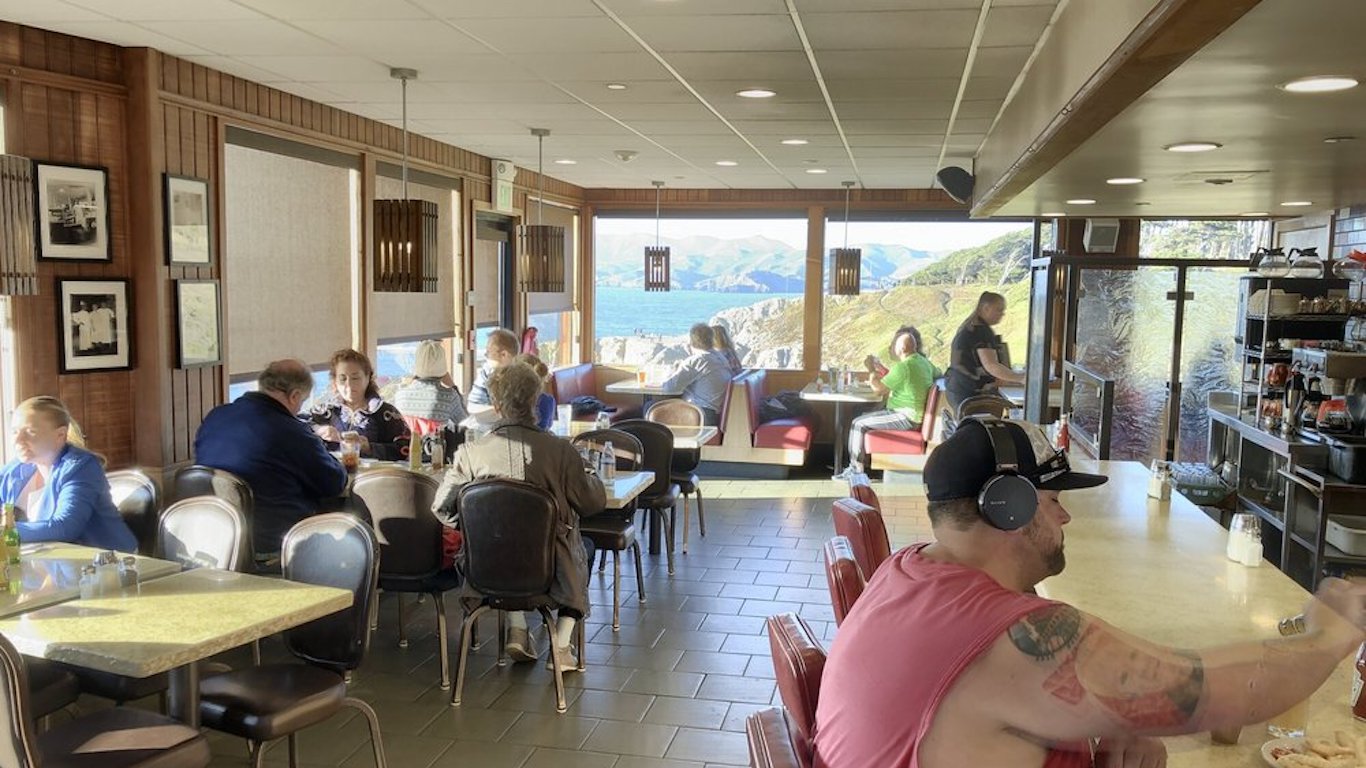
California: Louis’
> Location: San Francisco
A San Francisco restaurant icon that opened in 1937 above the remains of the historic 1894-vintage public swimming complex called Sutro Baths, Louis’s is no more. The owners — grandchildren of the original owners — posted a message on the restaurant Facebook page in mid-July reading in part “After much deliberation and a lot of tears we have decided after 83 continuous years of business…to close our business permanently.”
[in-text-ad]
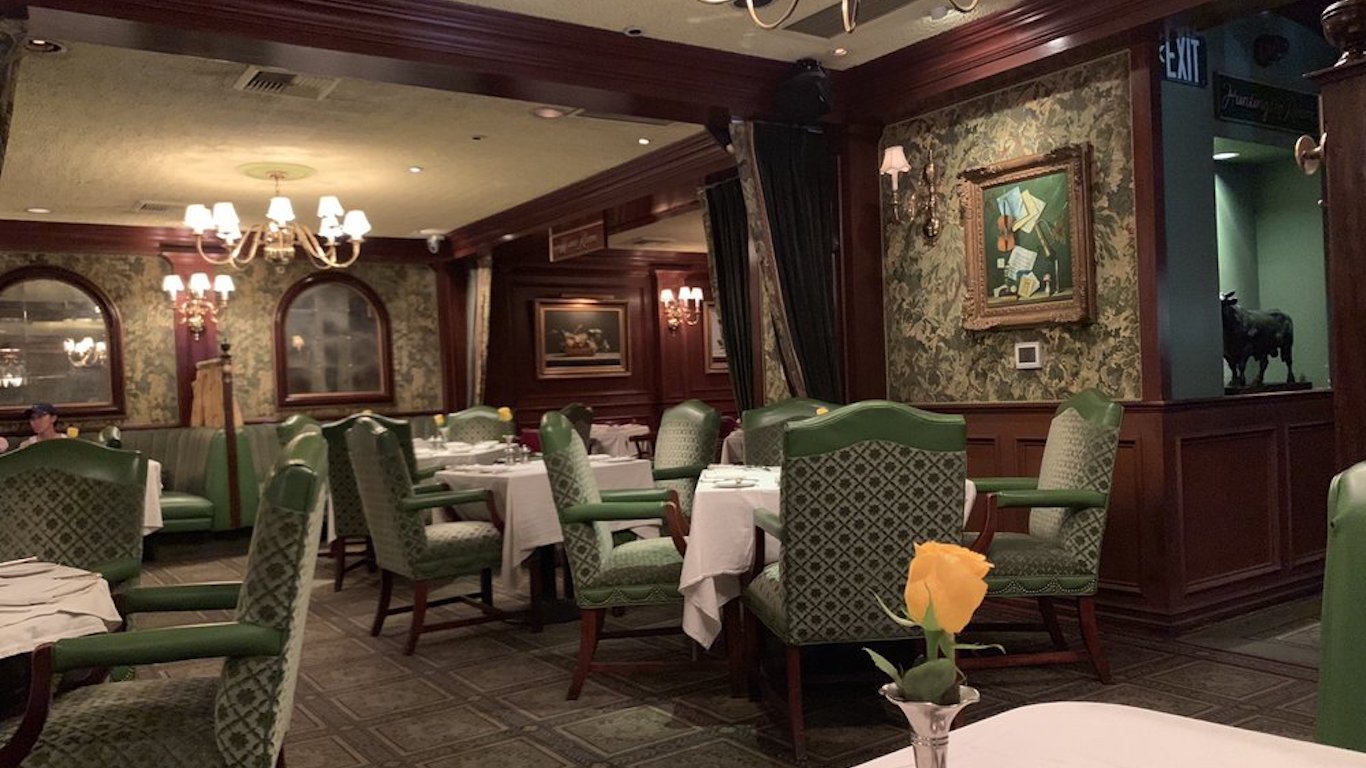
California: Pacific Dining Car
> Location: Santa Monica
The original Pacific Dining Car in downtown L.A., founded in 1921 and probably the city’s best-known steakhouse, spawned this Westside location in 1990. Serving 24 hours a day until the coronavirus lockdown, it was considered a Santa Monica essential. The owners say that the combination of the pandemic crisis and curfews imposed during the recent protests made it untenable for the restaurant to reopen.
The contents of the place — including kitchen equipment, table settings, furniture, and paintings — were sold at auction in June.

Colorado: 20th Street Café
> Location: Denver
After 74 years in business under three generations of the Okuno family, this neighborhood breakfast-and-lunch establishment has called it quits. The place has survived “up-turns and crazy downturns in the economy,” wrote current owners Rod and Karen Okuno on the restaurant website, “but this final one proved to be insurmountable for our little corner of the world.”
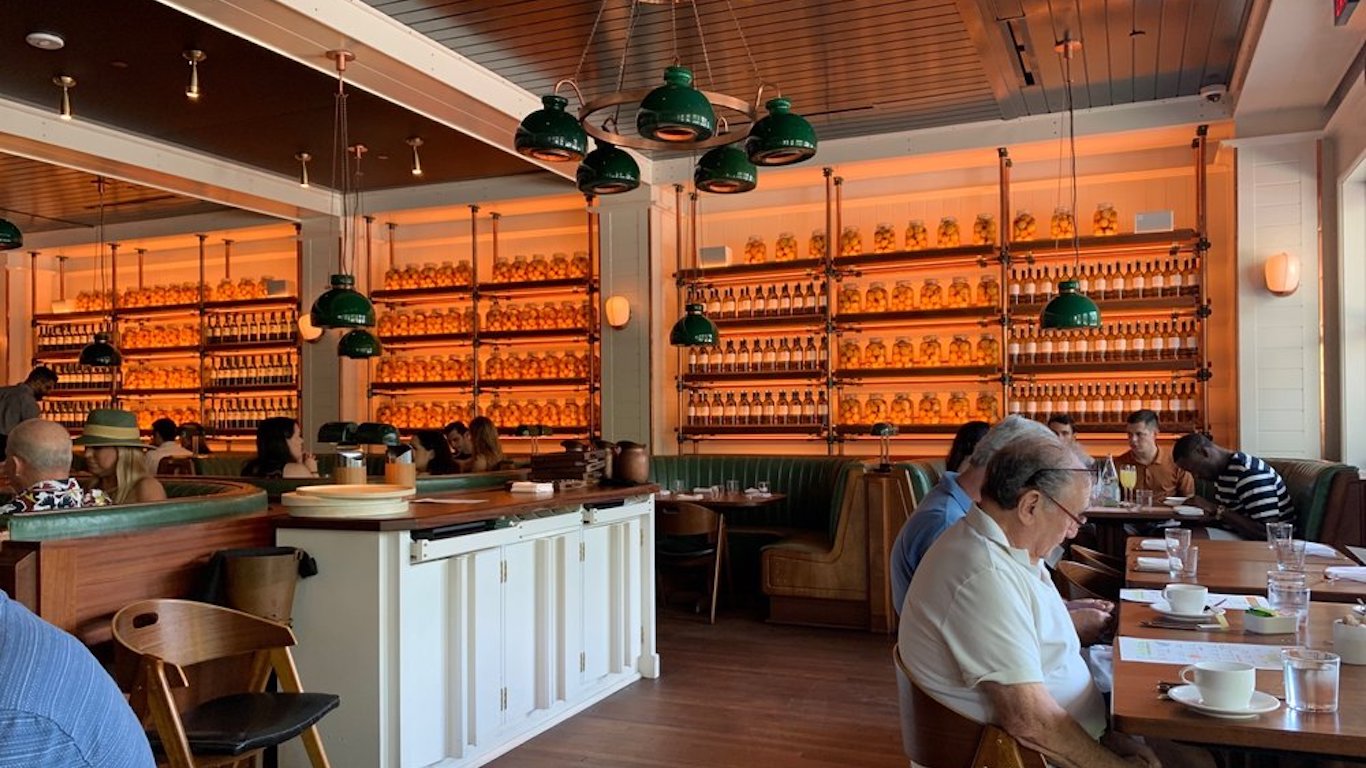
Florida: Upland
> Location: Miami
Philadelphia restaurateur Steven Starr, who operates dozens of acclaimed restaurants in several states, permanently closed this California-style establishment — an offshoot of the popular Upland on Park Avenue in New York City– in early September. Besides shuttering, the restaurant filed for Chapter 11 bankruptcy protection, listing 17 creditors. “The realities of the impact of the pandemic and the gamble on the unknowns of when life will resume left this specific operating entity with little choice,” Starr told the Philadelphia Business Journal.
[in-text-ad-2]
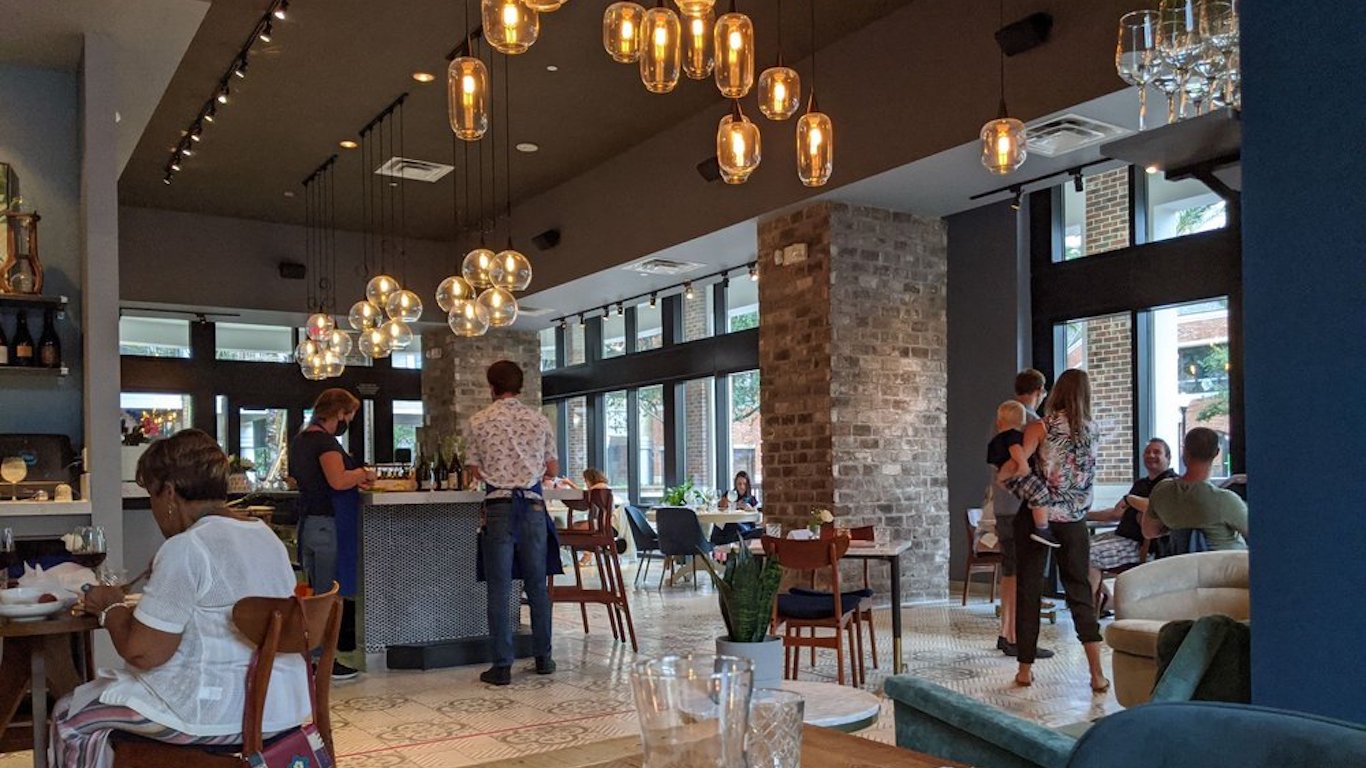
Florida: Elize
> Location: Orlando
Aug. 22 was the last night for this well-reviewed offshoot of a restaurant with the same name in Utrecht, in The Netherlands. Elize chef Leon Mazairac — said to be a culinary celebrity in Holland — was hailed in March by Orlando Weekly as “one of the city’s best new chefs.” His menu of modern European small plates, however, was no match for COVID-19. “[T]he large economic impact resulting from the coronavirus pandemic has made it impossible for us to sustain operations,” wrote the restaurant’s owners on the Elize Facebook page.
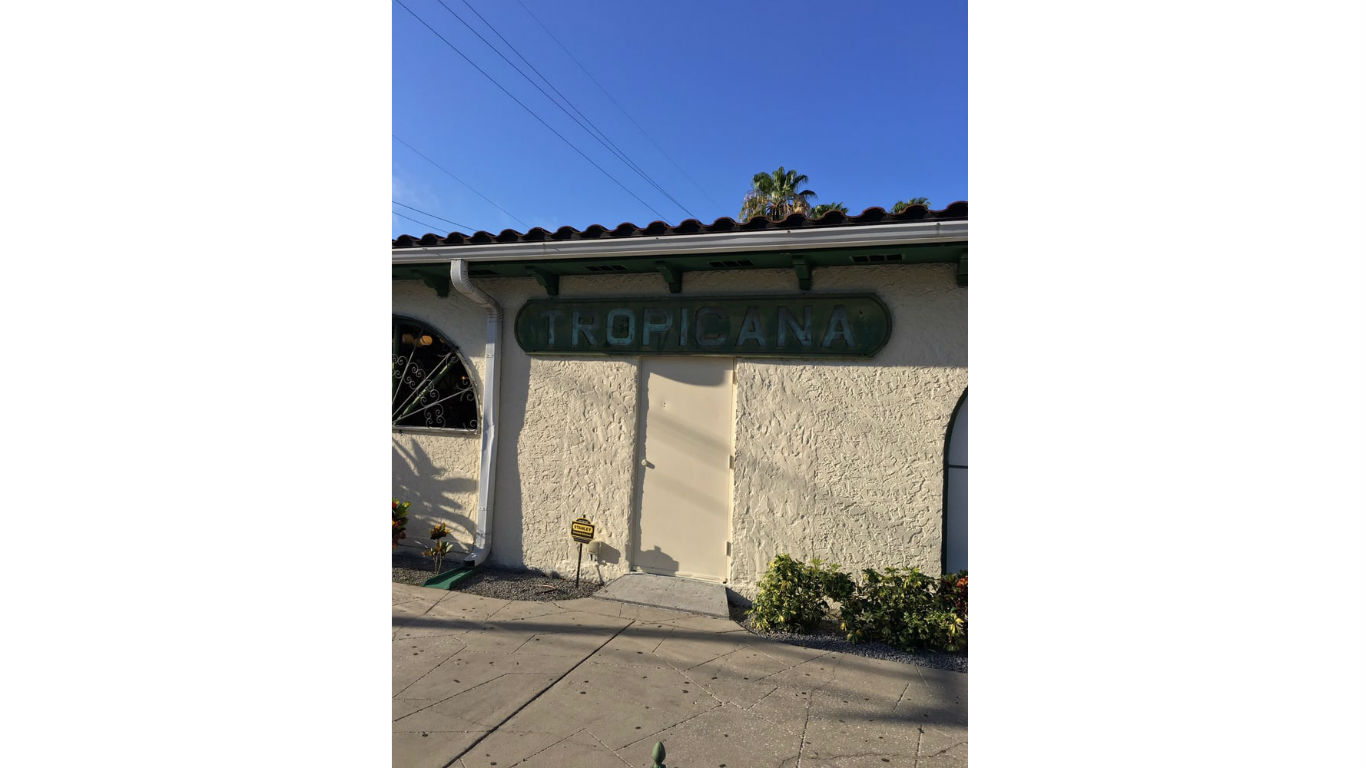
Florida: La Tropicana
> Location: Tampa
Presidents George W. Bush and Jimmy Carter, along with several Florida governors, were among the many customers of this 1963-vintage Cuban café over the years. A focus of public life in Tampa’s historic Ybor City neighborhood, La Tropicana also served a wide range of less famous customers. In explaining why the place was closing down, proprietor Gio Peña told the Tampa Bay Times, “I’d say 80 percent of my regular customers are older people. They are afraid to come out.” He added “We were doing good. Business was steady. And then came COVID.”
[in-text-ad]
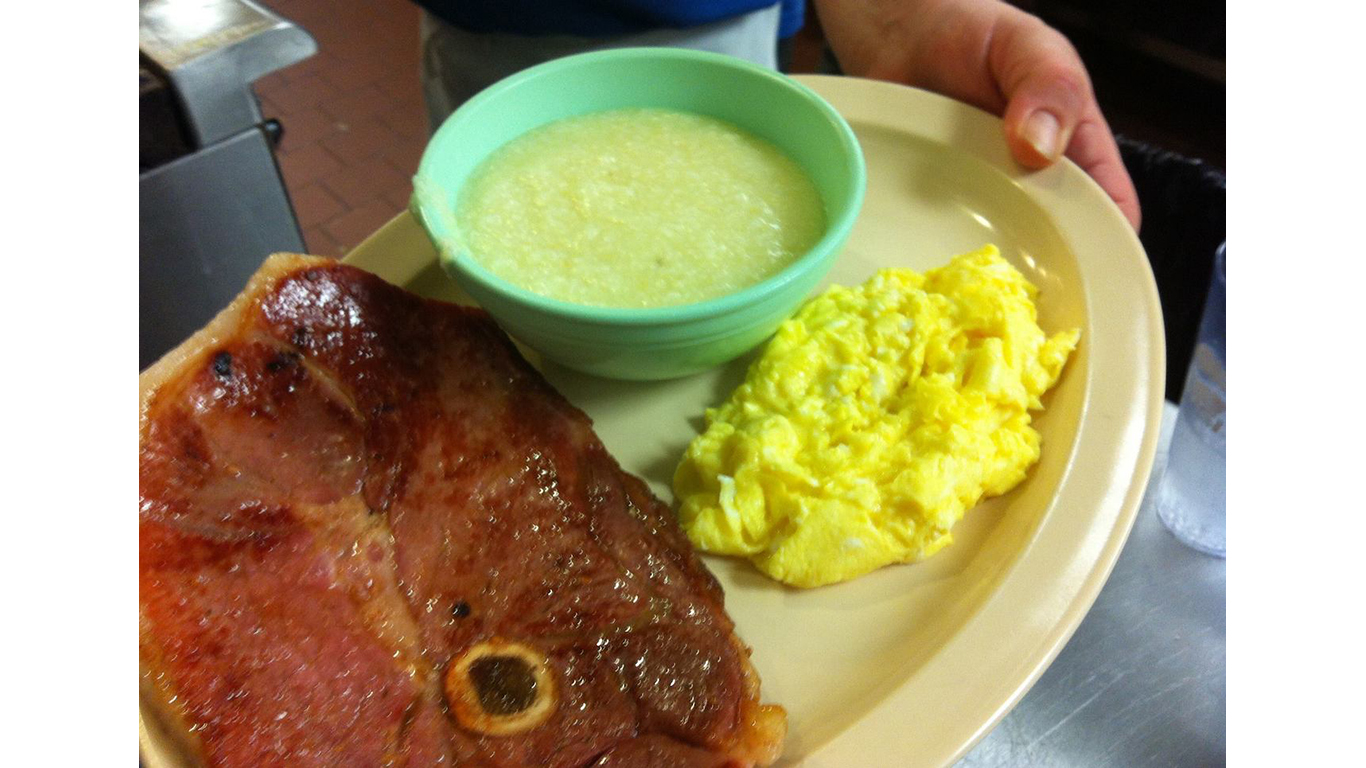
Georgia: Anne and Bill’s
> Location: Forest Park
After 46 years in business in this Atlanta suburb, Anne and Bill’s — known for its meat-and-three menu (various meats served with a variety of side dishes), its breakfasts, and its homemade desserts — is going out of business. A statement from the restaurant in mid-May said that “our sales have dropped so low that we cannot continue to operate….” A second location, in McDonough, southeast of Forest Park, has also closed.
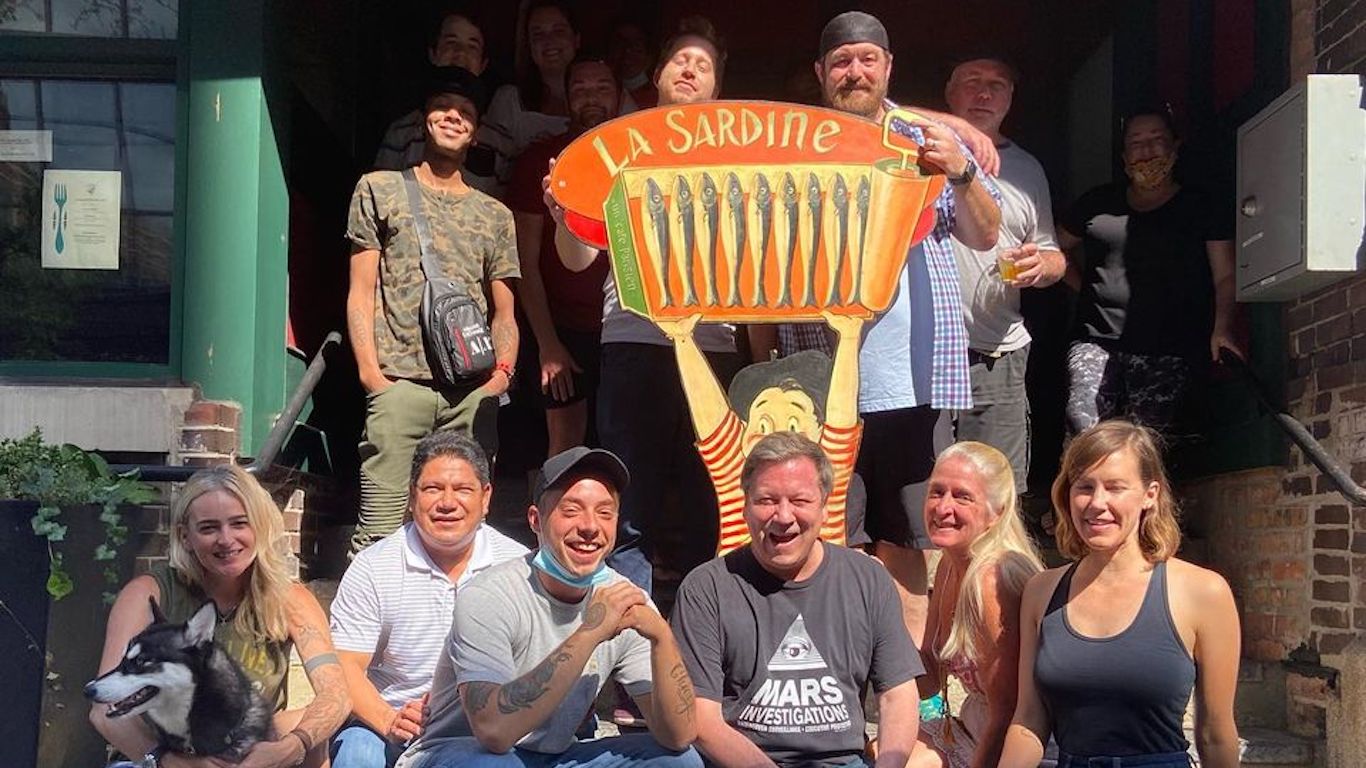
Illinois: La Sardine
> Location: Chicago
“After much thought and negotiation, it breaks our heart to announce that after 22 years, we will be permanently closing,” read a statement on this popular French bistro’s Instagram page in mid-August. Le Sardine’s founders, Jean-Claude and Susanne Poilevey, both died in recent years (Jean-Claude in 2016, his wife last year). Their son, Oliver, who had been running the place, told the Chicago Tribune, “A month, month and a half ago, I thought we were going to make it.”
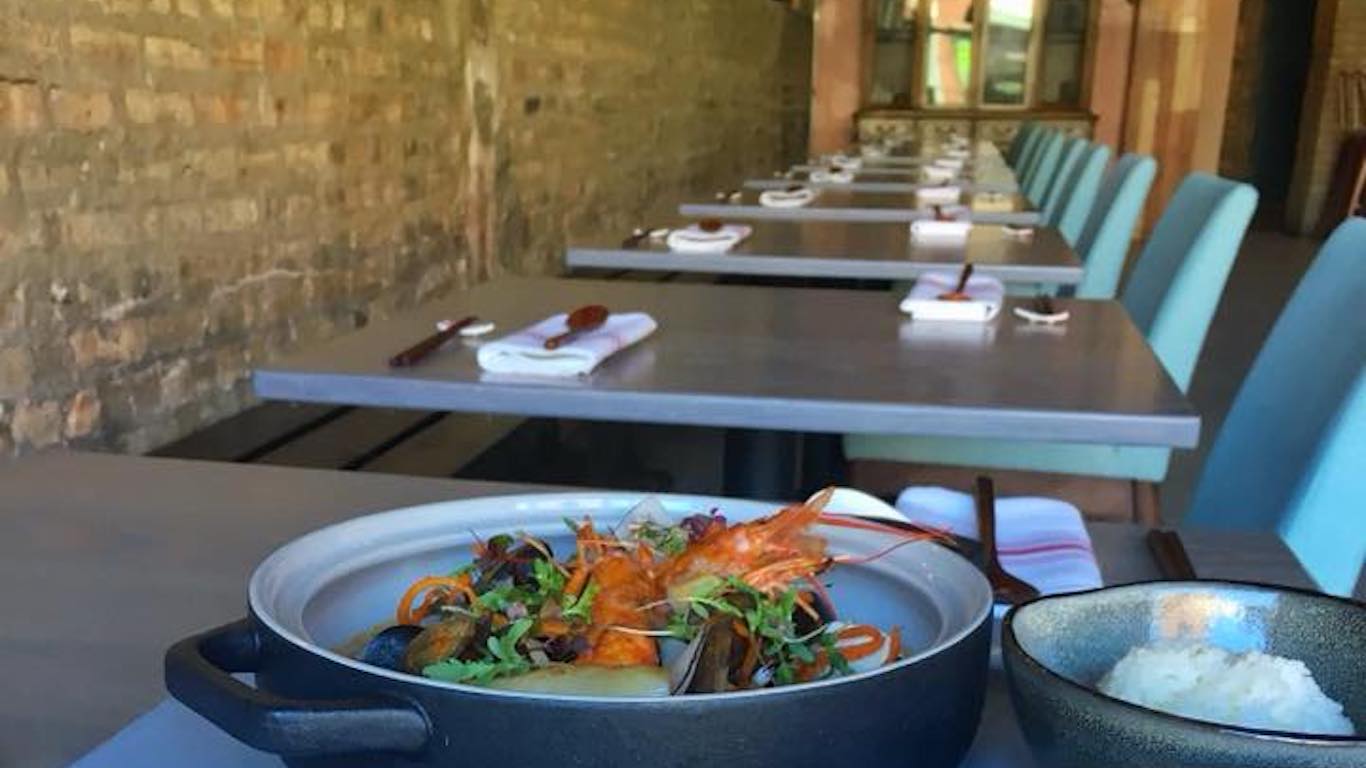
Illinois: Passerotto
> Location: Chicago
A five-star review from Time Out didn’t help this place, which the publication described as an “Italian-influenced Korean-American eatery,” survive the pandemic. The restaurant, which the review called a “lively ecosystem” with a “boisterous bar,” served a takeout Farewell Menu until it turned out the lights for good on Sept. 12.
[in-text-ad-2]
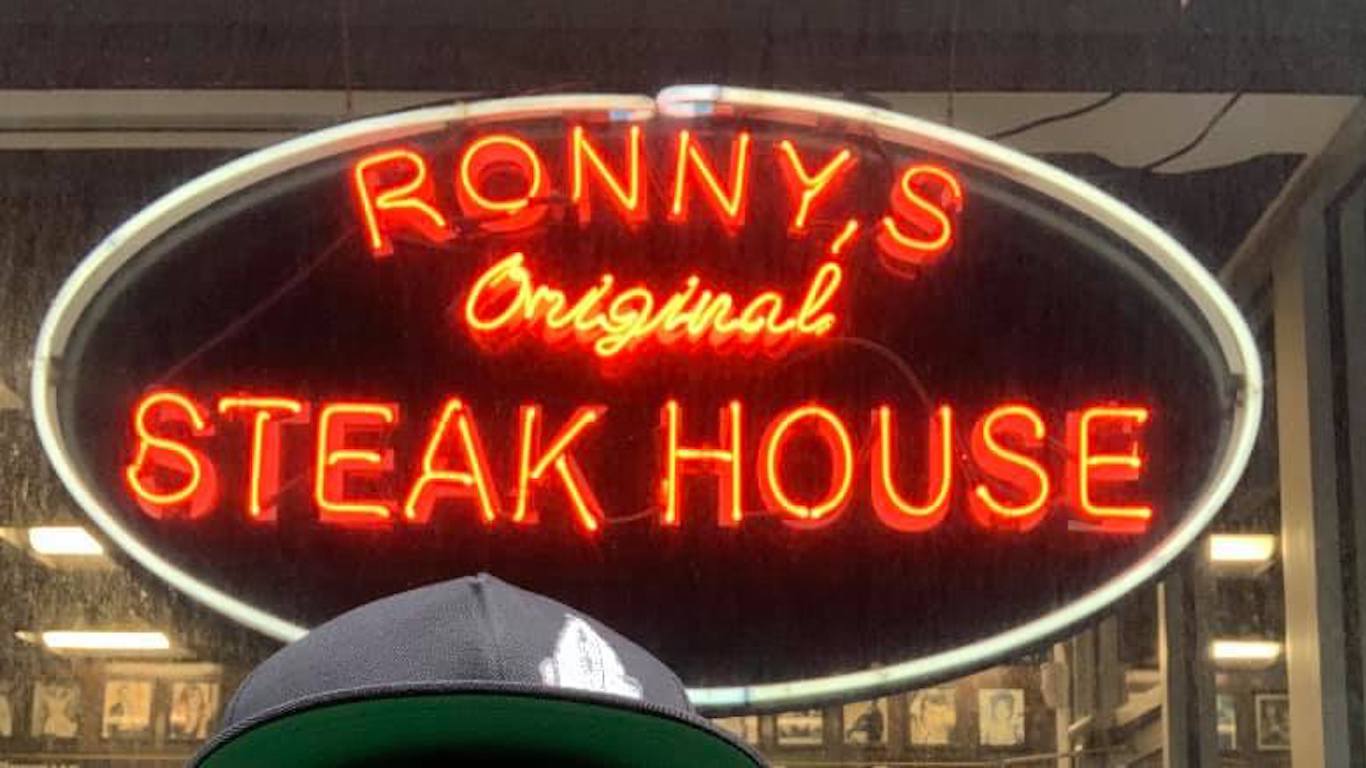
Illinois: Ronny’s Original Steakhouse
> Location: Chicago
This bargain-priced cafeteria-style steak emporium, which opened in another location in 1963, has called it quits. “Farewell, Chicago,” read a message on the establishment’s Facebook page, dated Sept. 6. “It has been an historic run; it’s time to turn off that famous neon sign one final time.”
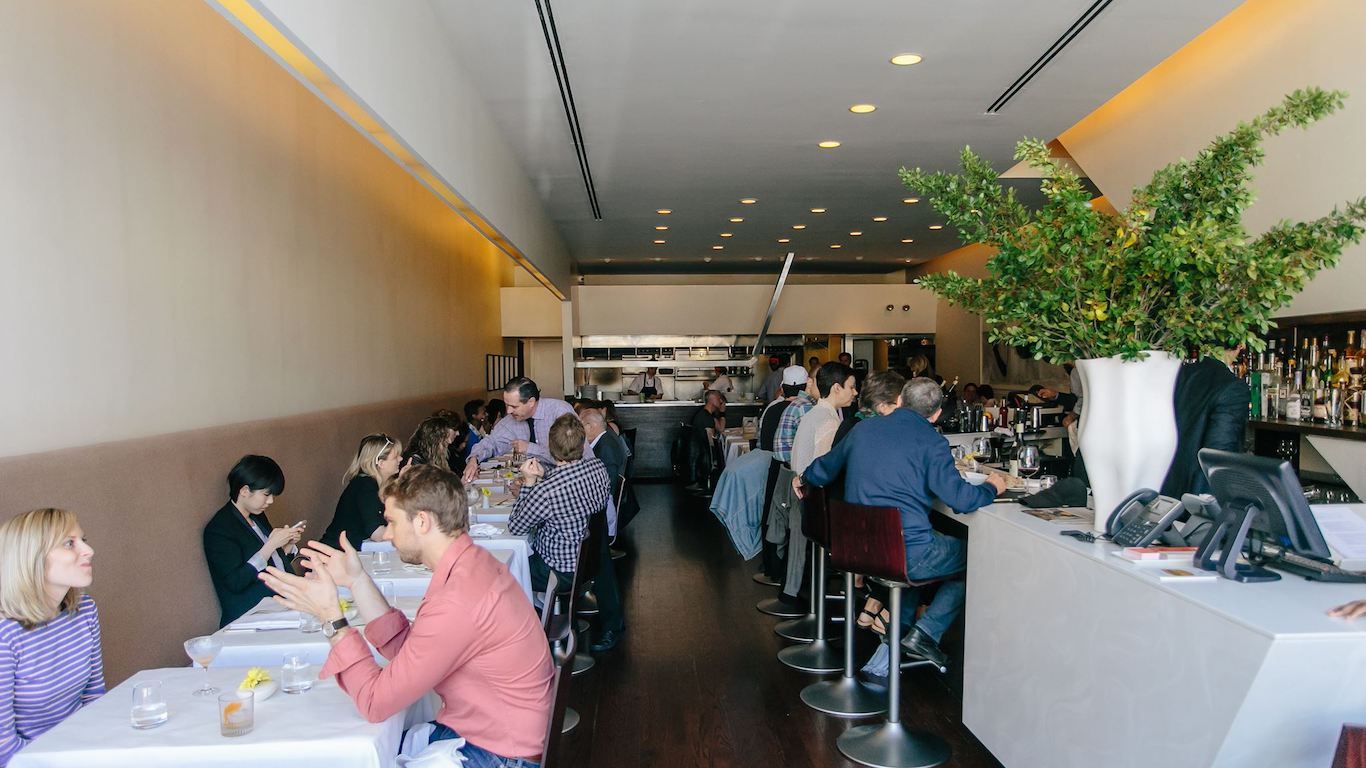
Illinois: Blackbird
> Location: Chicago
This well-loved West Loop restaurant — hailed by the Chicago Tribune as “one of Chicago’s greatest restaurants” — was opened 22 years ago by Paul Kahan, who has since become one of the city’s best-known chef-restaurateurs. (His other places include Avec, Publican, and Big Star). Blackbird’s intimate size and layout made social distancing impossible, and the restaurant announced on its website that “we have made the very difficult decision to close our doors.”
[in-text-ad]
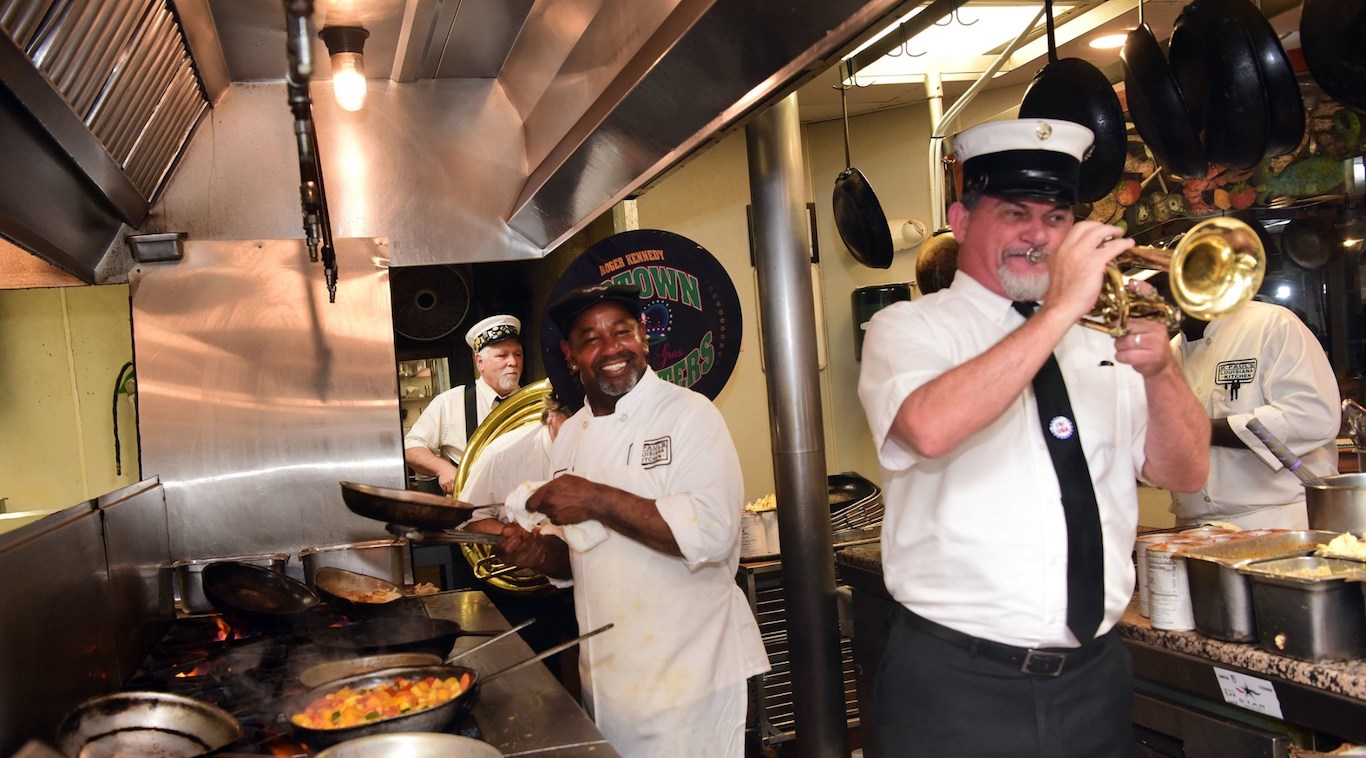
Louisiana: K-Paul’s Louisiana Kitchen
> Location: New Orleans
The demise of the legendary K-Paul’s in mid-July is one of the most significant of all COVID-related restaurant closures. This highly influential Cajun establishment was opened in 1979 by chef Paul Prudhomme and his wife, Kay, and it soon became a Crescent City bucket-list destination, with lines forming nightly outside. With such vividly flavored dishes as the iconic blackened redfish, K-Paul’s ignited a nationwide craze for Cajun cooking. Kay died of cancer in 1993 and Prudhomme passed away in 2015, but the place stayed open under the chef’s niece, Brenda Prudhomme, and her chef husband, Paul Miller.
After several coronavirus-mandated closings and reopenings earlier this year, though, they issued a statement on July 13″regretfully announcing permanent closure of K-Paul’s Louisiana Kitchen.” Miller explained to NOLA.com that “The business has been bleeding through this, and you can only bleed so much before you have to stop it.”
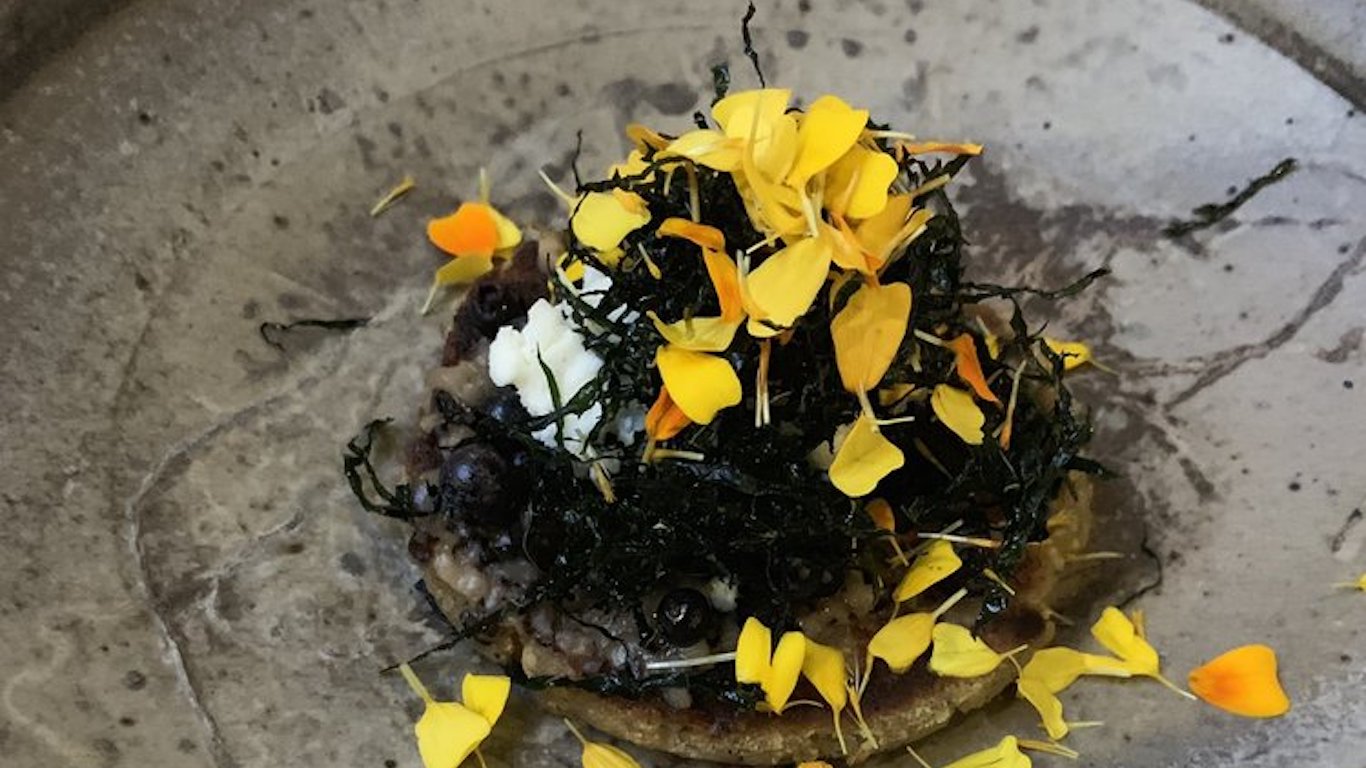
Maine: Vinland
> Location: Portland
Famous for its rigorously local New England-based menu (such staples as olive oil and black pepper were banned from the kitchen on the grounds they’re not produced in the Northeast), Vinland served its final meal on Aug. 21. Chef-owner David Levi posted a message on Facebook reading in part, “Vinland could not withstand the long quarantine required for the Covid-19 pandemic, the disproportionate impact on the fine dining sector of the food industry, and the overall downturn in the economy, the last of which may reverberate for years.” He added, “I’d hoped for a reopening even as I failed to see the viable path. The path, for us, didn’t exist. ”
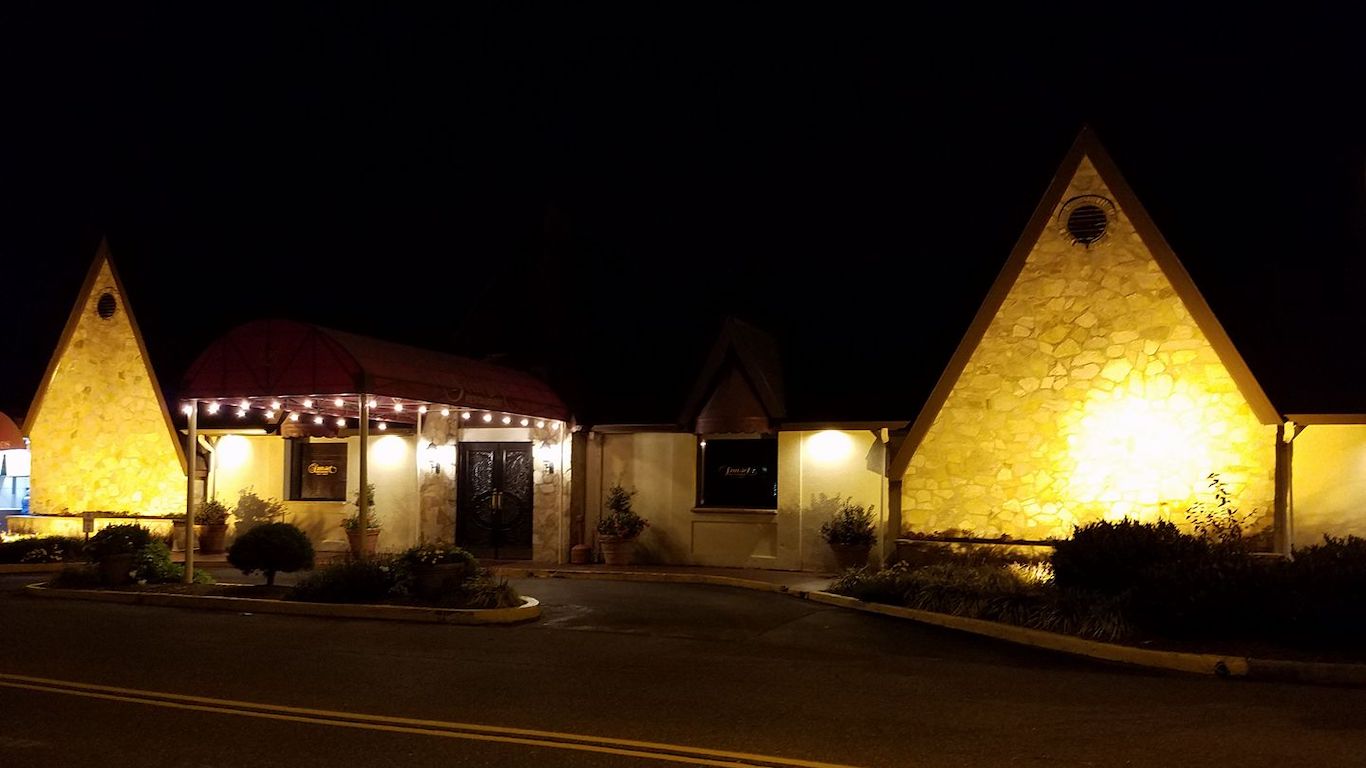
Maryland: Sunset Restaurant Lounge
> Location: Glen Burnie
From its origins as a nightclub, complete with slot machines, in 1960, this establishment in a Baltimore suburb evolved into a popular full-service restaurant, known for its crab soup and other local specialties. In late August, the owners announced on their Facebook page that they would close permanently on Sept. 30. “We anticipated celebrating our 60th anniversary this year but instead we were met with unprecedented hardship due to the COVID Pandemic,” they wrote. “Like many other family owned businesses, restrictions and the regulations imposed by the restaurant industry have driven us to make this decision.”
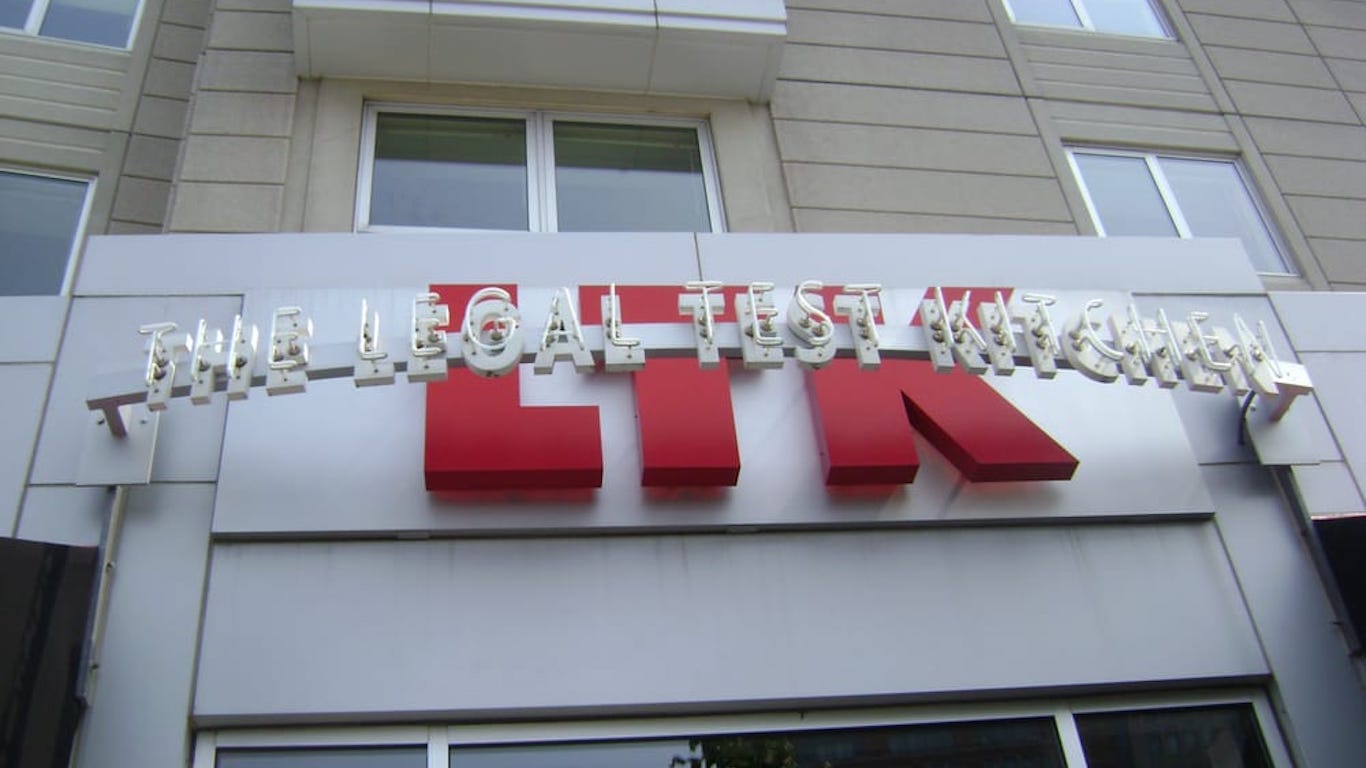
Massachusetts: Legal Test Kitchen
> Location: Boston
A branch of the famed Massachusetts fish and shellfish chain Legal Seafoods, this once-bustling 15-year-old establishment in Boston’s Seaport district is now out of business, according to information reported on Aug. 27. “Due to the lack of area business and travel … “the company felt it didn’t make sense to reopen the location,” Legal explained to Boston.com. There is one other Test Kitchen location at the city’s Logan Airport (the idea was that the Test Kitchens would experiment on dishes not found on the chain’s usual menus). It is currently closed but will reopen in early fall. Meanwhile, 11 other Legal Seafood locations around the state remain open.
[in-text-ad-2]
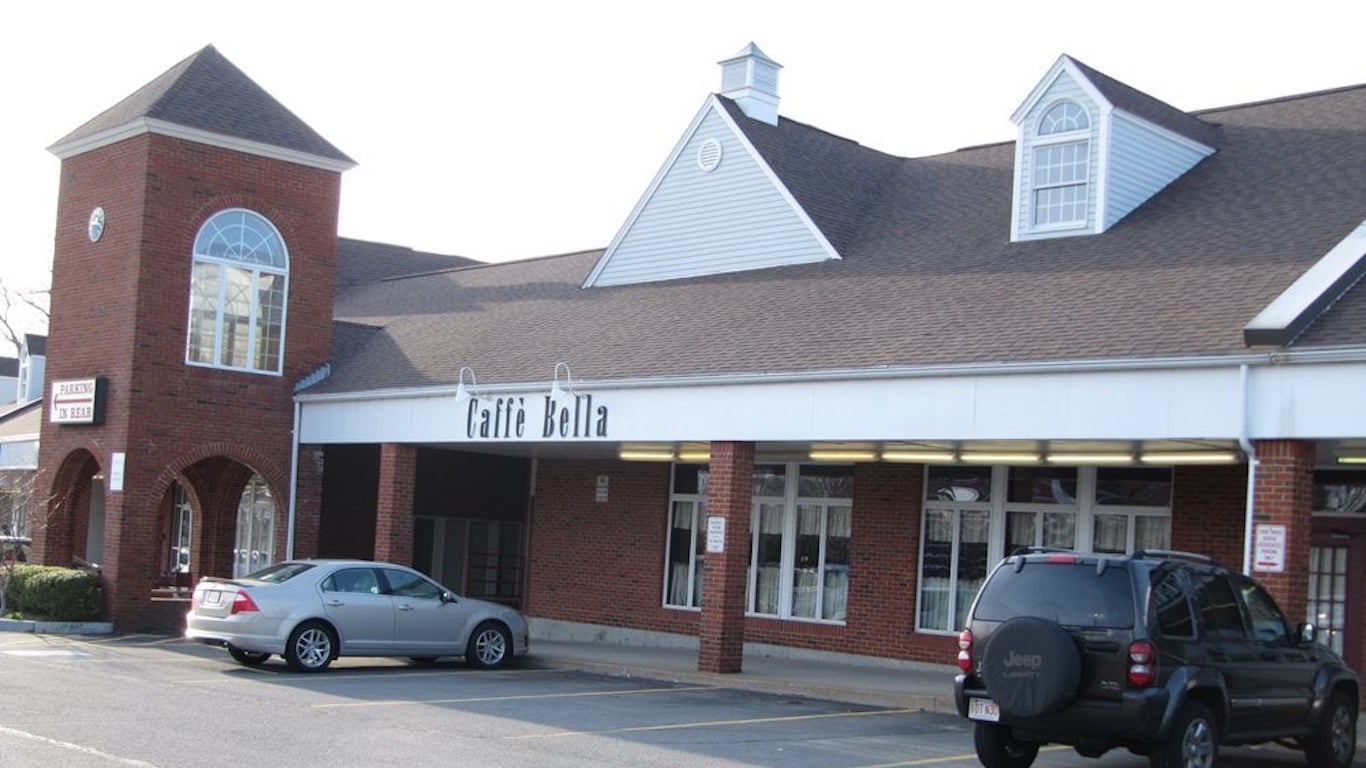
Massachusetts: Caffe Bella
> Location: Randolph
After almost three decades of serving Italian fare in this community south of Boston, Caffe Bella closed down in March like other area restaurants for what owner Patrick Barnes Jr. hoped would be a temporary hiatus. Unlike other local establishments, though, it didn’t reopen when restrictions were eased. It never will. In late July, Barnes posted a statement on Facebook saying that “[U]nfortunately the pandemic has caused the Caffe to call it a day!”
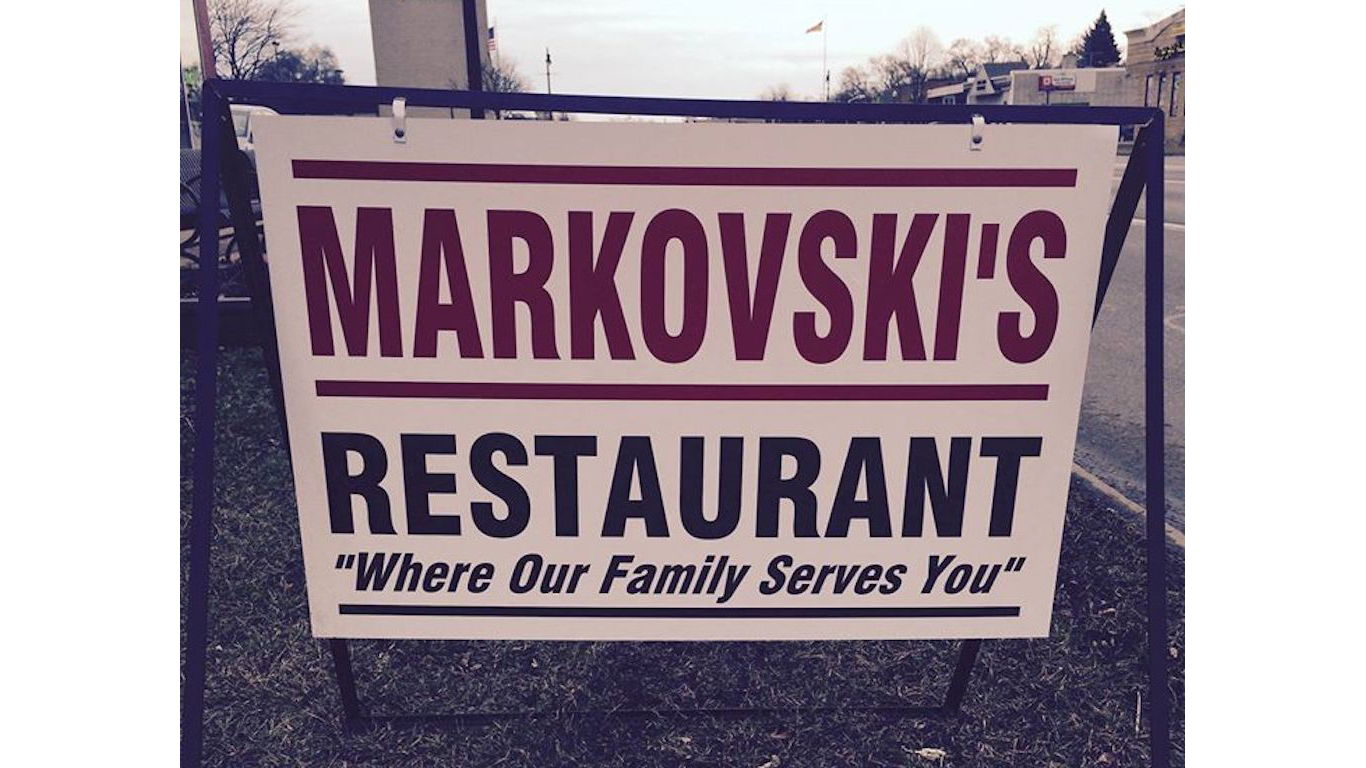
Michigan: Markovski’s Family Restaurant
> Location: Dearborn Heights
After 50 years in business in this suburb of Detroit, Markovski’s, famous for its stuffed cabbage, kielbasa, and other Polish specialties, has said goodbye. In a statement on Facebook, the proprietors declared that “A worldwide pandemic was the only thing that could separate our tightly knit family [and] if you were here, you were definitely family.”
[in-text-ad]
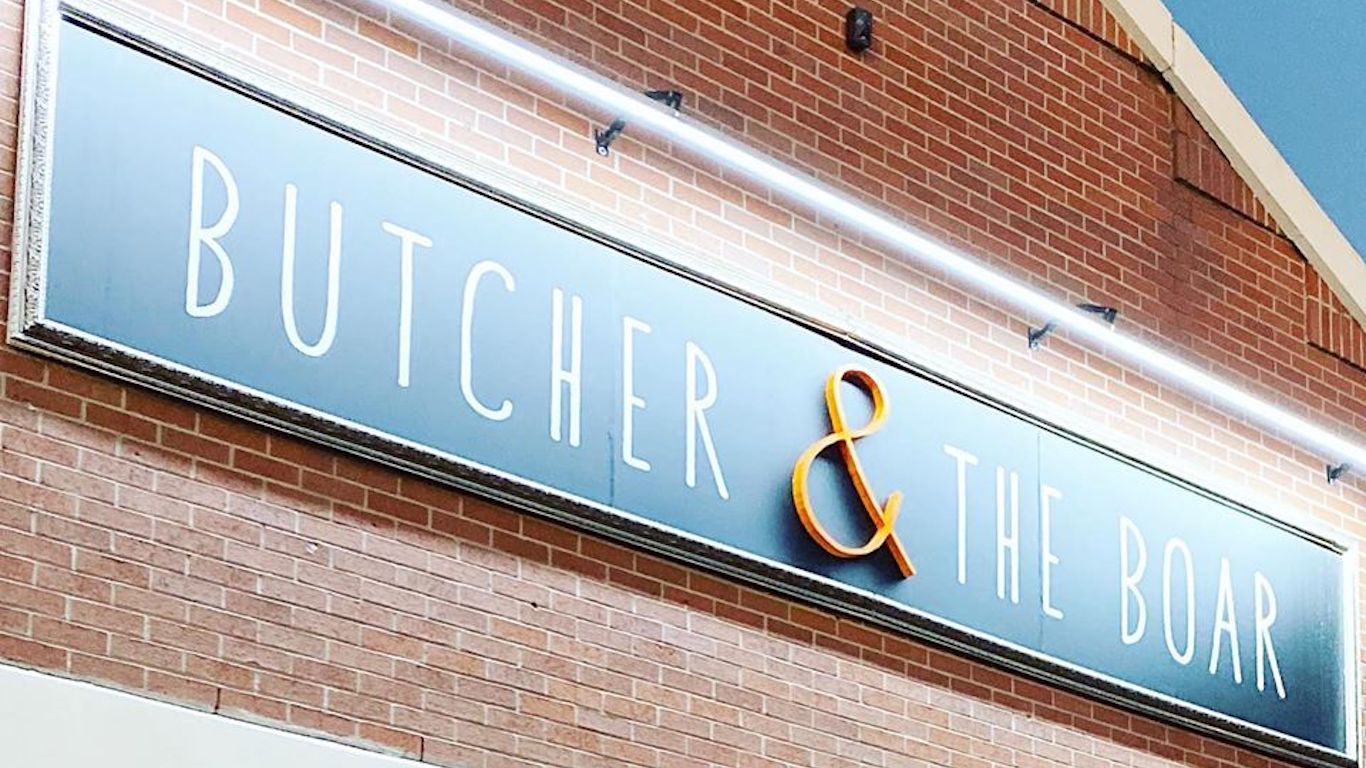
Minnesota: Butcher & the Boar
> Location: Minneapolis
Aug. 31 was the last night of service for this downtown Minneapolis establishment — described by the Star Tribune as a “loud, lively, fun-loving restaurant” with “a one-of-a-kind” menu attracting “crowds and critical acclaim.” A sign posted on the door of the 8-year-old restaurant read in part, “Due to Covid 19 and the unrest in Minneapolis we are sadly closing our doors permanently.” A second location in Charleston, South Carolina, remains open.
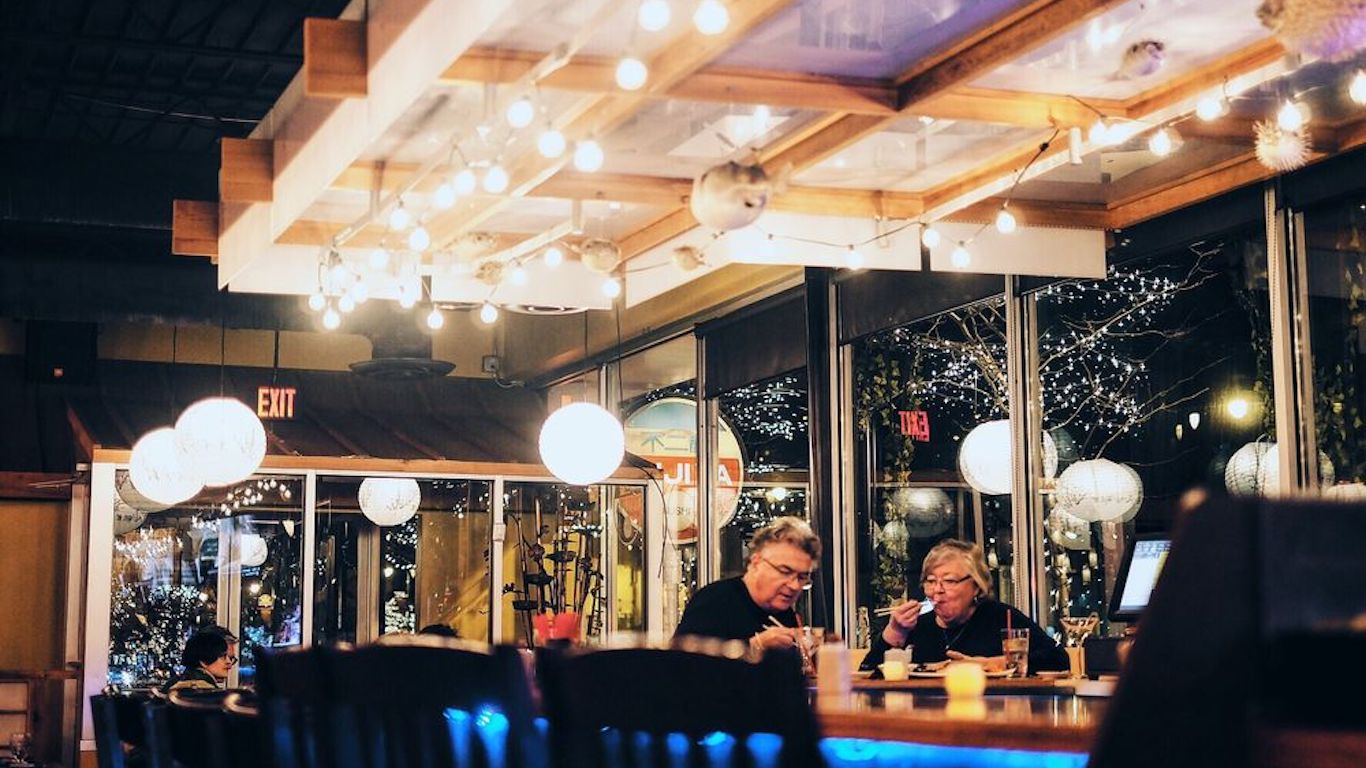
Minnesota: Fuji Ya
> Location: Minneapolis
When Reiko Weston opened Fuji Ya in 1959, it was apparently the first-ever Japanese restaurant in Minnesota. It expanded and spawned offshoots. Weston died in 1988, and two years later the place closed down — until her daughter brought it back to life in 1997. The restaurant shuttered temporarily in early May, but by the end of that month, its website carried the message: “Thank you for your support! Unfortunately we are closing our doors.”
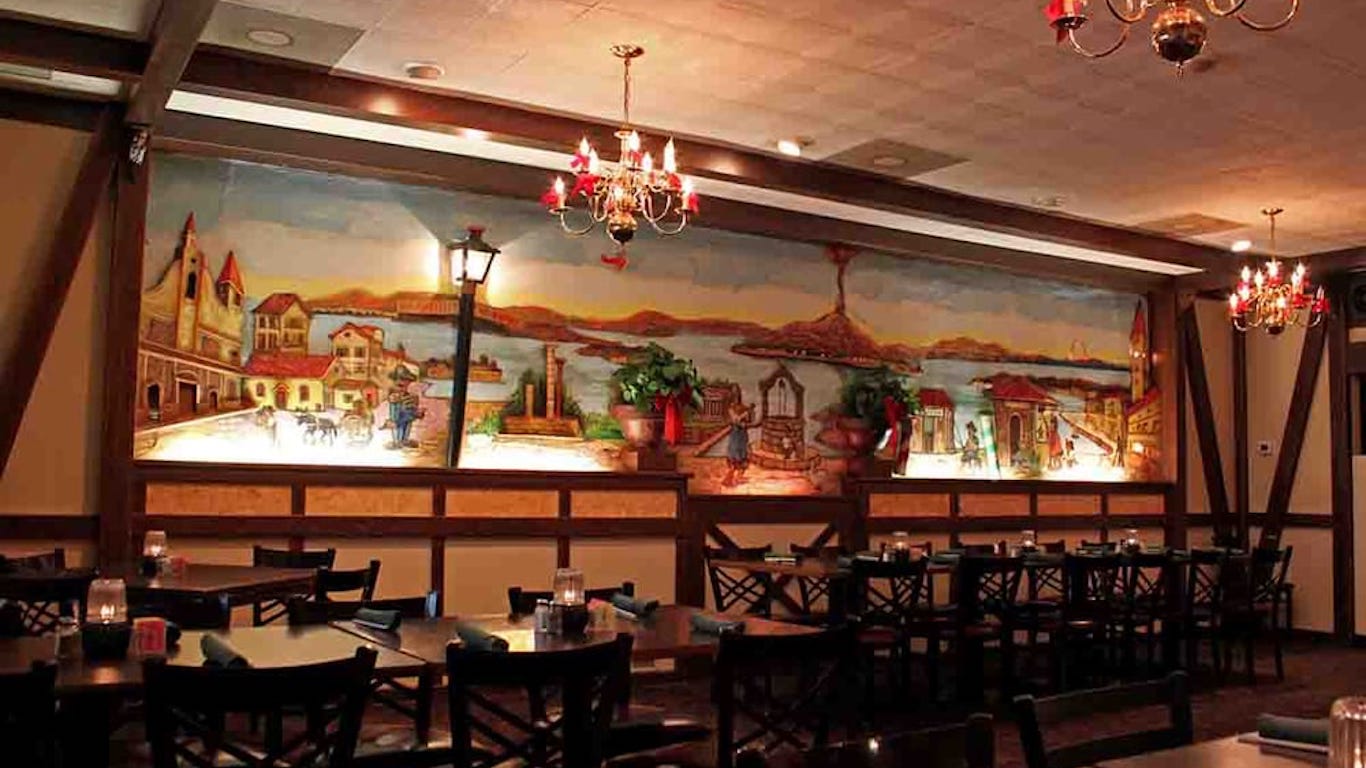
Missouri: Cusanelli’s
> Location: St. Louis
Occupying a building that traces its history back two centuries, this institution in the city’s Lemay neighborhood — featuring what it billed as “The Original St. Louis Style Pizza” — opened in 1954. It became a family favorite, and comments on the restaurant’s Facebook page sentimentally recall first dates, birthdays, anniversaries, and other momentous occasions celebrated there. It was also on Facebook that the owners announced that Aug. 30 would be the restaurant’s last night of service, “Due to covid and unforeseen circumstances …”
[in-text-ad-2]
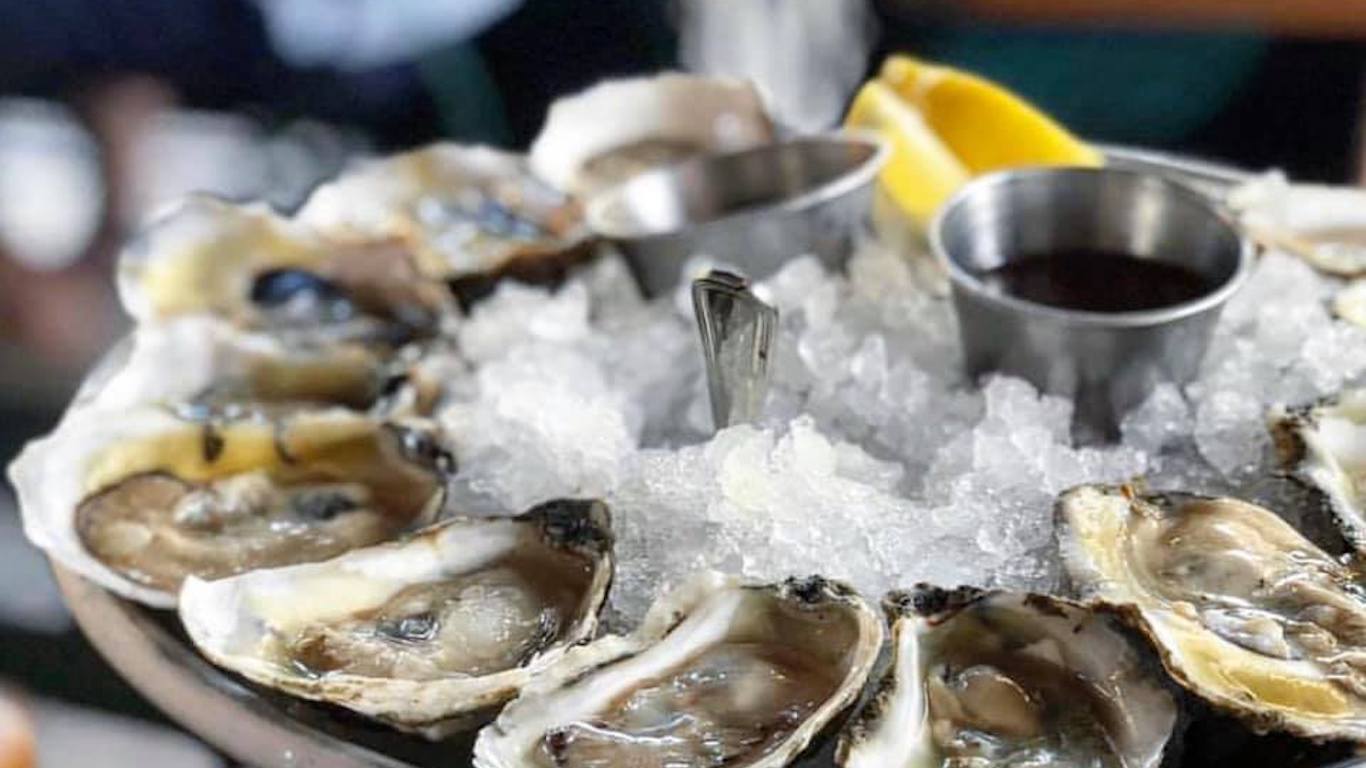
New York: Mermaid Inn
> Location: New York City
“It is with great sadness that we announce the closing of The Mermaid Inn at 96 Second Ave.,” wrote restaurant owners, Daniel Abrams and Cindy Smith, in an open letter to “Our Valued Guests and Friends.” Debuting almost 18 years ago, this was the first location of what became a mini-chain of three more Mermaid Inns around Manhattan. “Our lease expired on August 31st and we were not able to come to an agreement with the landlord on how to move forward both during and after the pandemic,” the letter added.
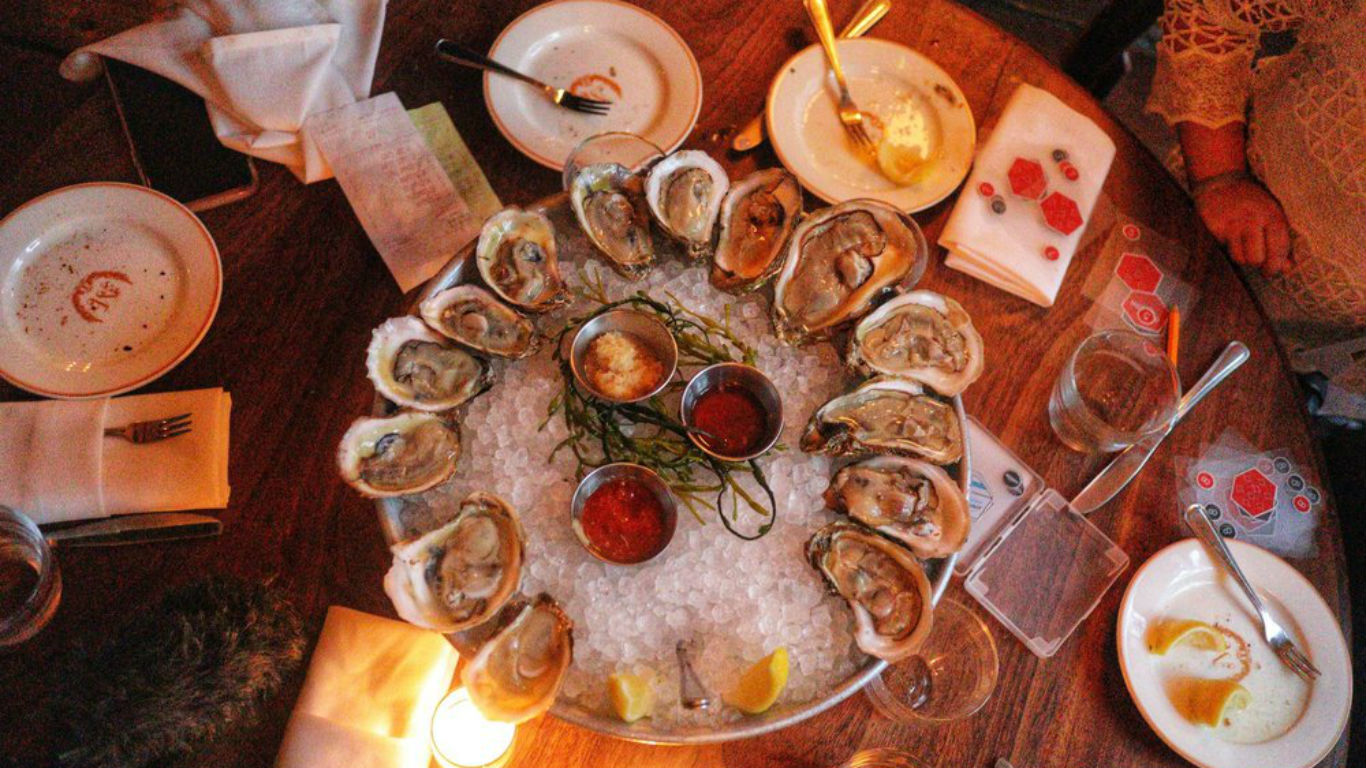
New York: Maison Premiere
> Location: Brooklyn
This popular nine-year-old Williamsburg restaurant, known for its oysters, its New Orleans-style dishes, and its James Beard Award-winning bar program, is apparently out of business. Though it has issued no official statement, its website and Instagram page have shut down, its Facebook page continues no posts, and its phone number is not in service. Maison Premier’s sister restaurant, Sauvage, also in Brooklyn, is apparently similarly closed. Both restaurants filed for Chapter 11 bankruptcy a year ago but had continued operating until they were closed, theoretically temporarily, with the advent of the pandemic.
[in-text-ad]
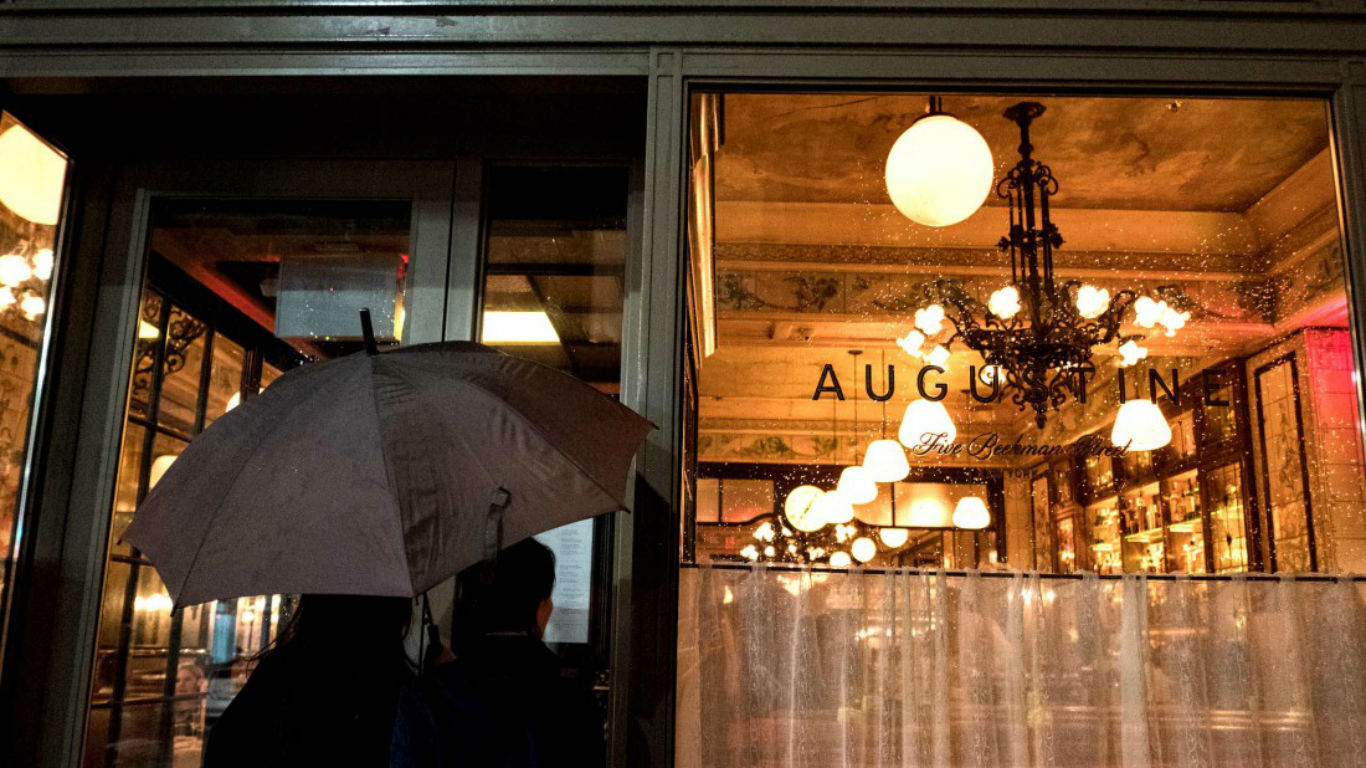
New York: Augustine
> Location: New York City
Blaming the inflexibility of his landlord, celebrated restaurateur Keith McNally announced on Instagram in late July that his French brasserie in downtown Manhattan’s Beekman Hotel, opened in 2016, is now out of business. McNally, who himself was hospitalized for COVID-19 in April but is now fully recovered, had earlier closed his 31-year-old SoHo bistro Lucky Strike due to the pandemic. On Instagram, McNally wrote that he looked forward to seeing his customers at one of his other New York City establishments — which include Balthazar, Pastis, and Minetta Tavern — “Or Debtor’s Prison – whichever comes first.”
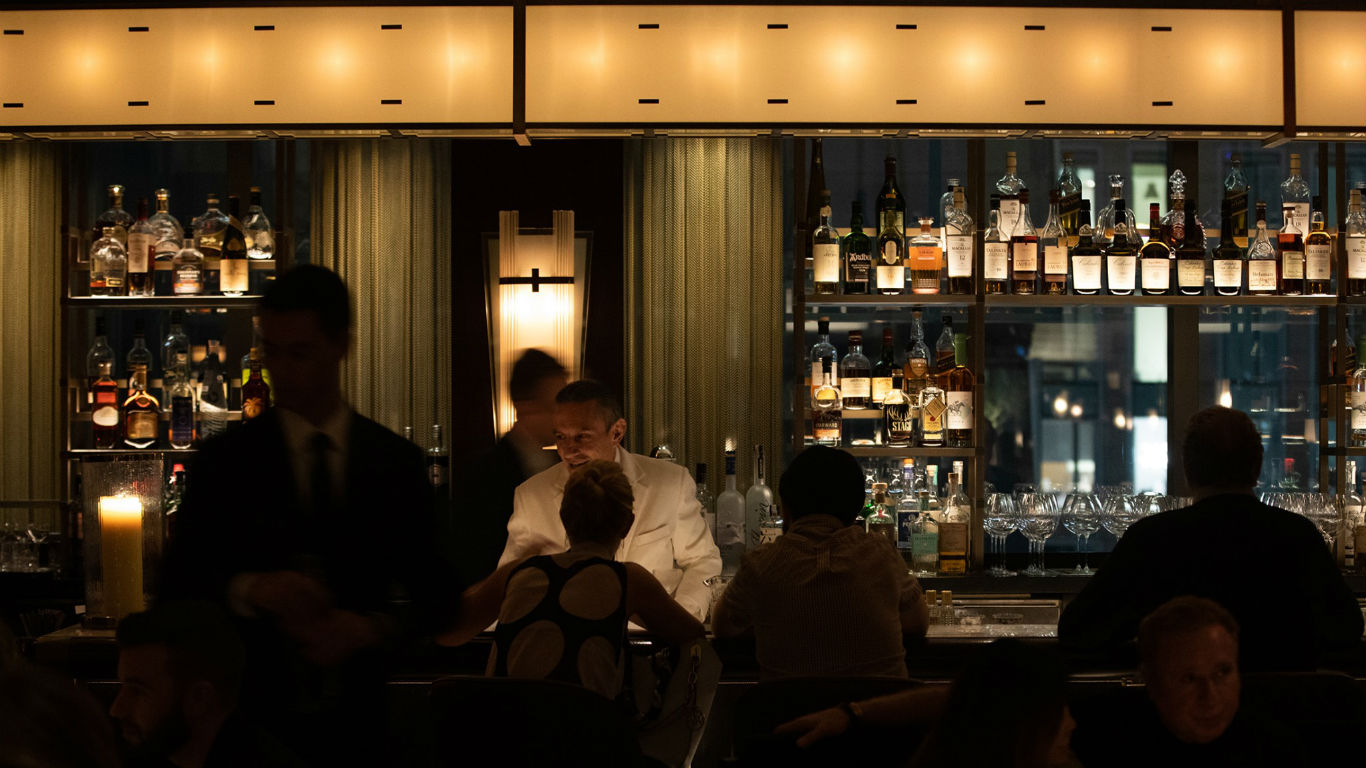
New York: TAK Room
> Location: New York City
Joining the ranks of other celebrity chefs who’ve been forced to permanently close restaurants around the nation — including the likes of Wolfgang Puck, José Andrés, Daniel Boulud, and David Chang — Thomas Keller has announced the demise of his TAK Room in the massive Hudson Yards development. The decision to close the super-pricey TAK Room as well as Keller’s more modest Bouchon Bakery in the same complex came, according to a statement on the restaurant’s Instagram page, “after painful deliberations amid a pandemic that has devastated the global economy and caused irreparable damage to our business and profession.”
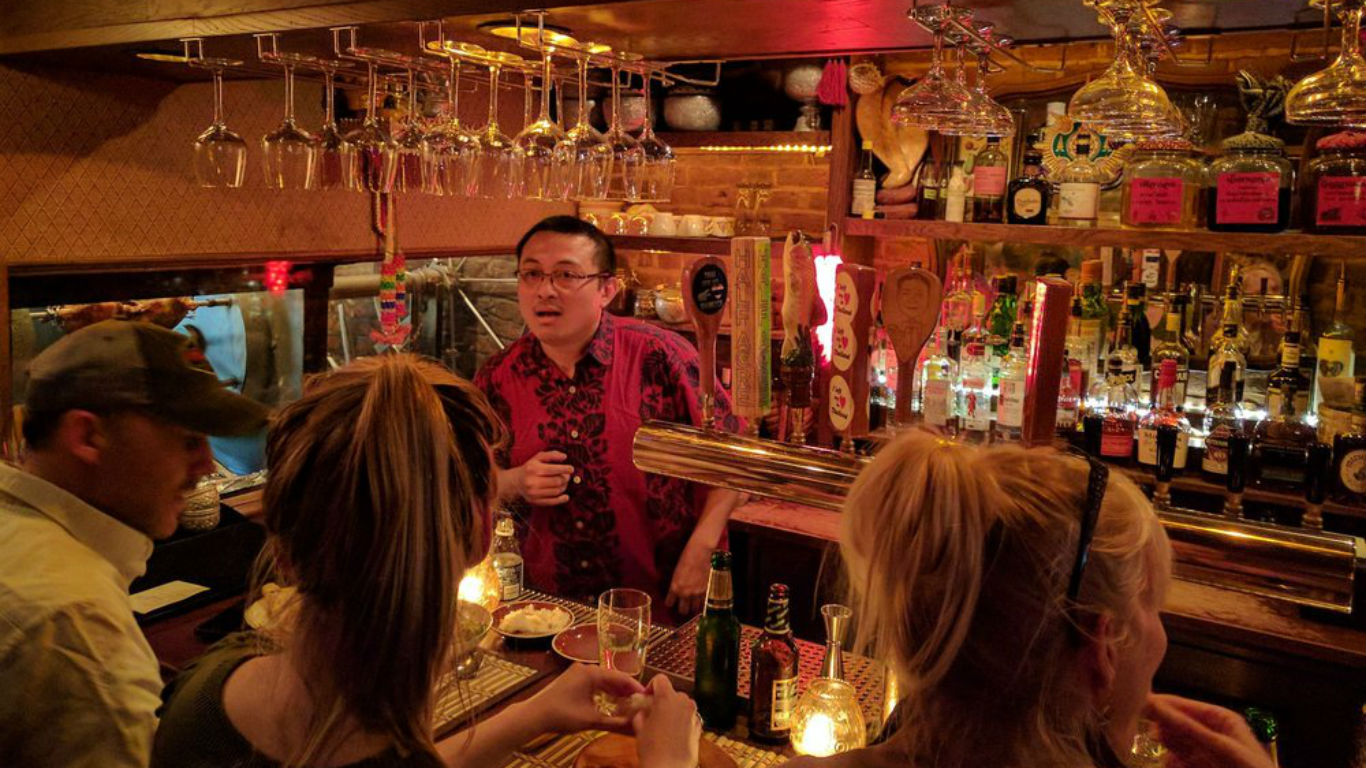
New York: Uncle Boons
> Location: New York City
Two former chefs at Thomas Keller’s acclaimed Per Se, Ann Redding and Matt Danzer, opened this small but very popular (and eventually Michelin-starred) Thai restaurant in Manhattan’s Nolita neighborhood in 2013. Now, a statement on the restaurant’s Instagram page says, “We’ve made the very difficult decision not to reopen Uncle Boon on the other side of the pandemic.” Eater called Redding and Danzer “some of the most exciting restaurateurs in NYC” on the basis of this place and their subsequently opened restaurants Uncle Boons Sister (which remains open for delivery and takeout) and Thai Diner (which will continue to deliver some favored Uncle Boons menu items).
[in-text-ad-2]
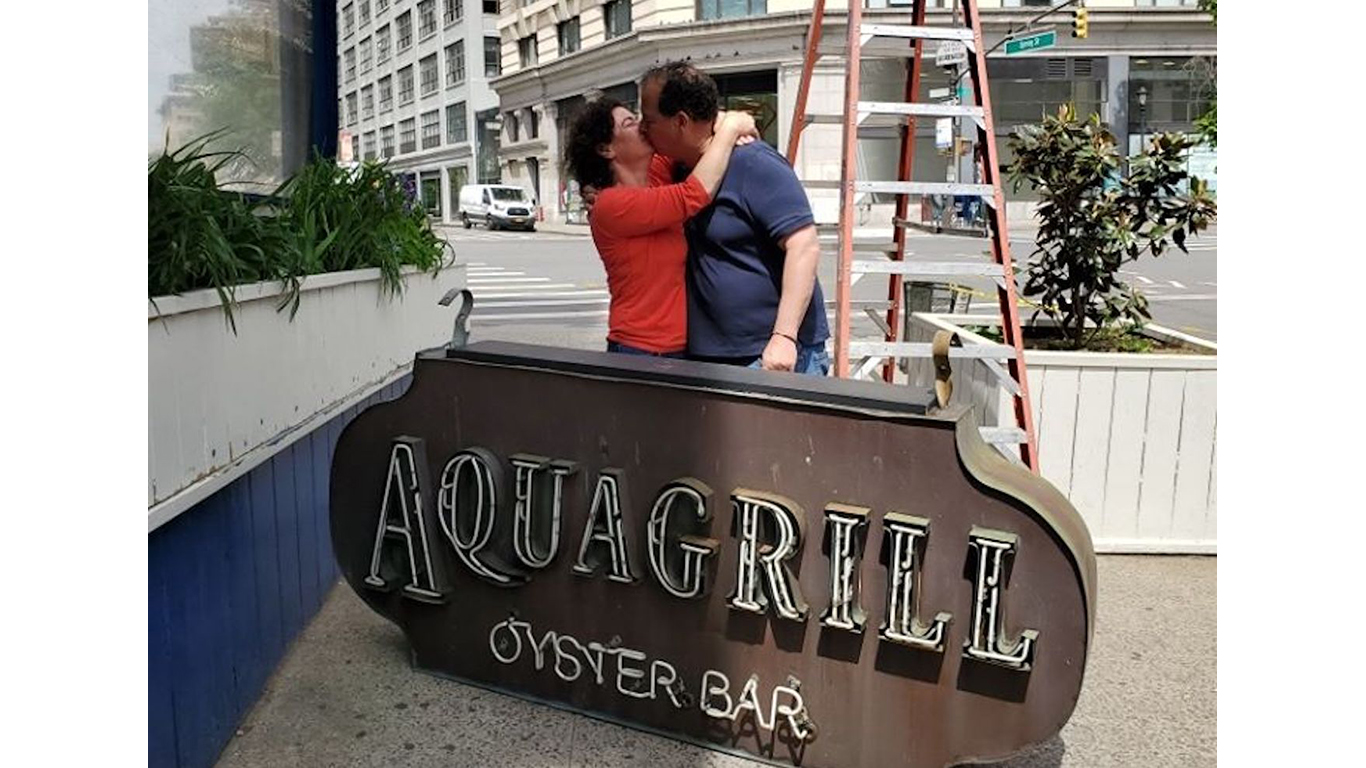
New York: Aquagrill
> Location: New York City
Add this 24-year-old SoHo seafood restaurant to the list of establishments that had closed temporarily in the face of the COVID-19 pandemic, but has now decided to make the closure permanent. “Aquagrill is not continuing to operate in light of the unsafe effects of the coronavirus on public dining out,” reads a statement on the restaurant website.
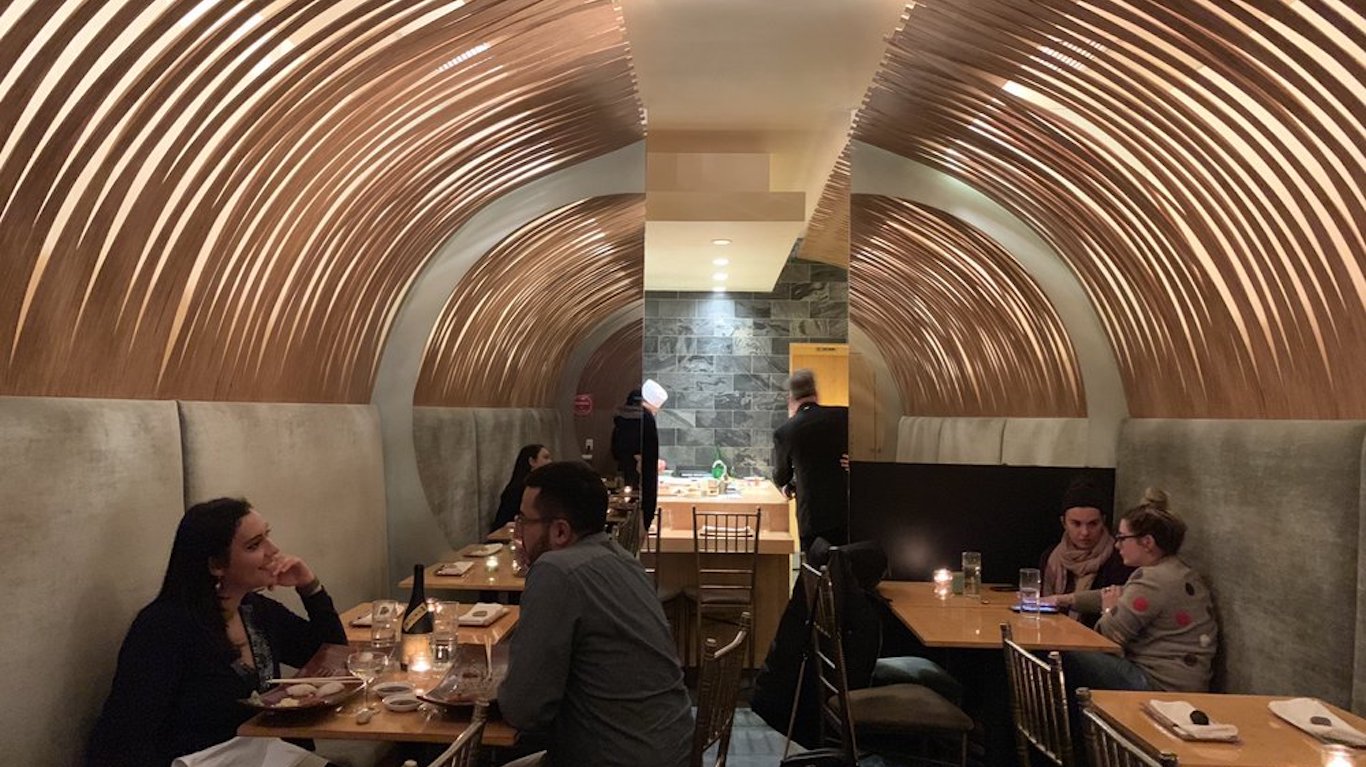
New York: Jewel Bako
> Location: New York City
A sign in the window of this well-loved Michelin-starred sushi bar near Manhattan’s Cooper Square, posted in mid-May, announced an “open house sale” of kitchen goods, appliances, and equipment, as well as wine “for cheap.” In 2018, Jewel Bako’s owners opened a chef’s counter place next door called Restaurant Ukiyo, which also won a Michelin star. A statement on the Ukiyo website announced officially that both establishments have closed for good.
[in-text-ad]
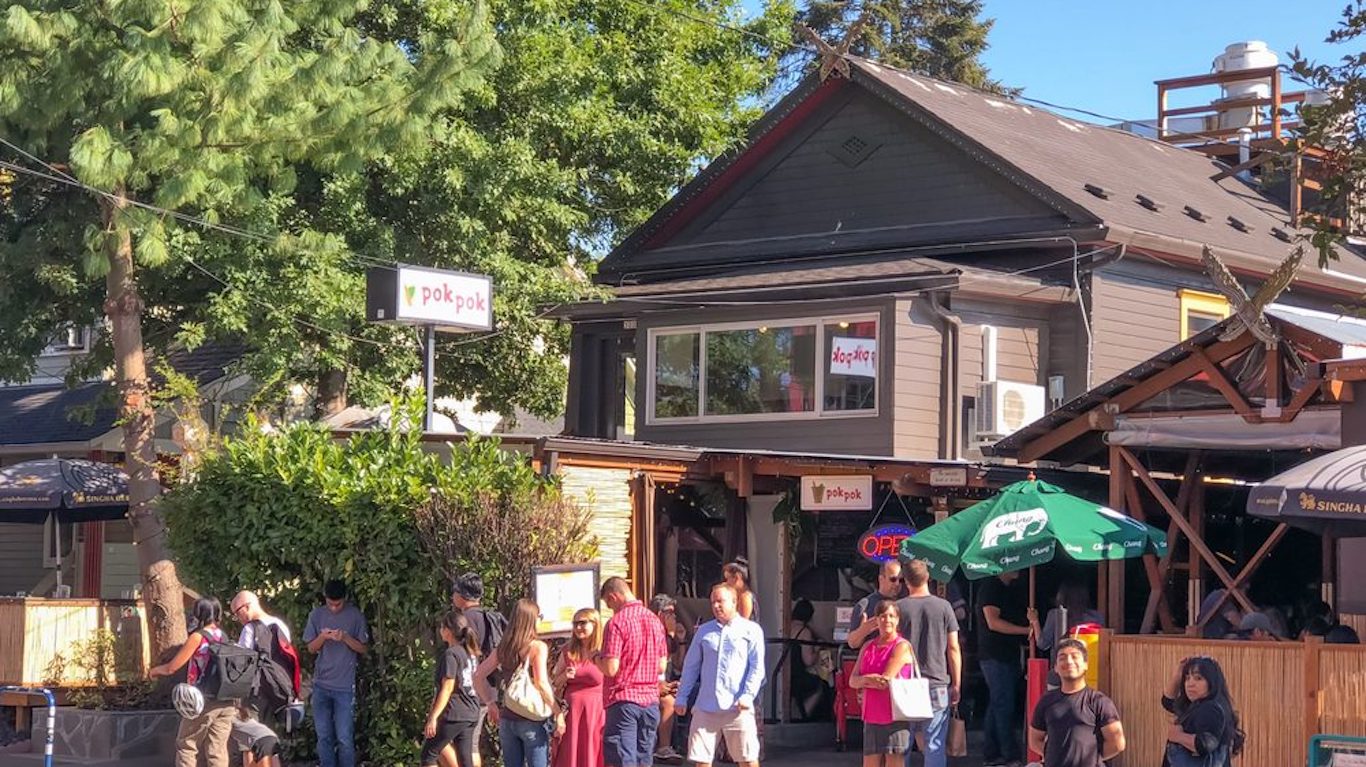
Oregon: Pok Pok restaurants
> Location: Portland
James Beard Award-winning chef-restaurateur Andy Ricker, whose Pok Pok restaurant group specializes in northern Thai and Vietnamese cooking, announced on Instagram in mid-June that he was closing four of his six Portland locations. It was originally reported that the shuttered restaurants would include Pok Pok NW, Whiskey Soda Lounge, and two outposts of Pok Pok Wing. The original Pok Pok would reopen, it was said, and a third Pok Pok Wing might also come back to life. Currently, however, the Pok Pok website states that “All Pok Pok restaurant locations are closed for on site service,” adding that meal kits and some prepared food is available for pickup at the company’s commissary kitchen.
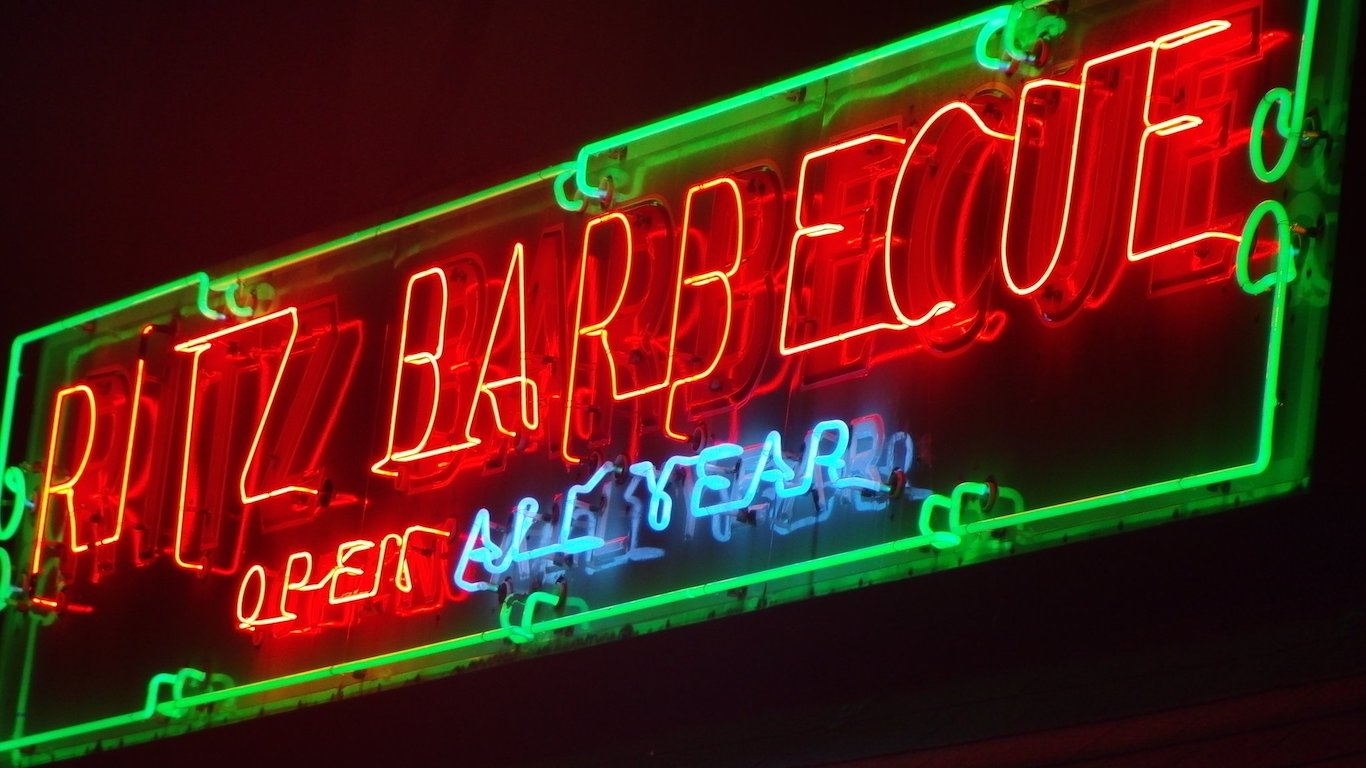
Pennsylvania: Ritz Barbecue
> Location: Allentown
Described by the Morning Call as “An Allentown landmark restaurant where generations of families gathered for barbecue, banana splits, milkshakes and more,” the Ritz grew out of a fairgrounds stand established in 1927 and moved to its present site 10 years later. The current owners, Jeff and Grace Stinner, who took over in 1981, announced in mid-June that they would not reopen. Though the restaurant had been for sale since 2019, Grace stressed to the Morning Call that the pandemic is to blame for their recent decision. “We did want to stay open until someone else took over,” she said, “but that’s not feasible now.
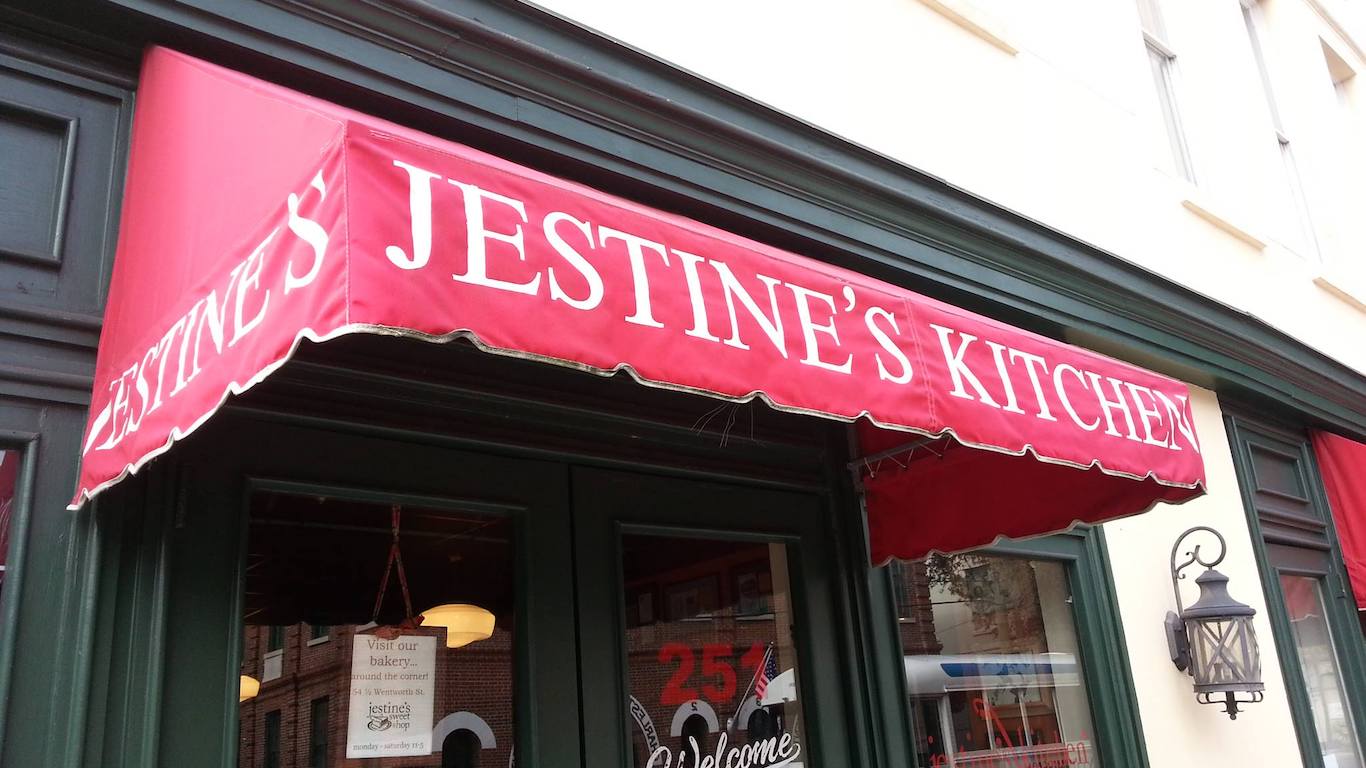
South Carolina: Jestine’s Kitchen
> Location: Charleston
A major tourist draw for 24 years, Jestine’s was named for Jestine Matthews, the African American housekeeper and cook employed by the white family that founded the place (Matthews died in 1997 at the age of 112). It was recently criticized as “the last Charleston restaurant to openly capitalize on the narrative of black servitude,” in the words of The Post and Courier. After reopening on May 20, the restaurant announced in mid-June that it would cease operations for good due to “the quick onset of the scary pandemic.”
[in-text-ad-2]
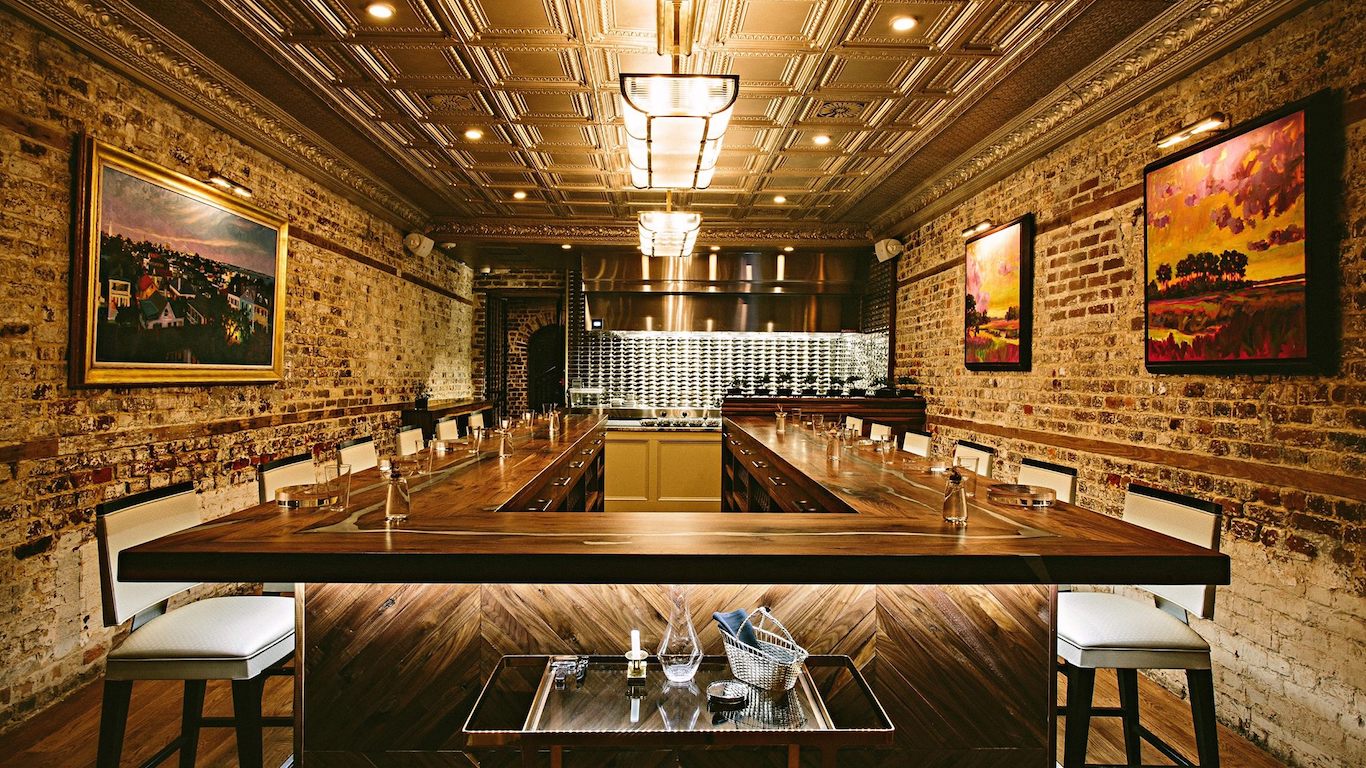
South Carolina: McCrady’s
> Location: Charleston
Known for the avant-garde tasting menus introduced by noted chef Sean Brock (who departed in 2018), McCrady’s will not resume serving even after restrictions are lifted. David Howard, president of Neighborhood Dining Group, which owns the restaurant, issued a statement saying in part that “we’ve come to the difficult decision that McCrady’s…will no longer be viable in this changed business environment….” The group’s Mexican restaurant, Minero, upstairs from McCrady’s, has also closed for good, but the Atlanta location has reopened, with restrictions in place, and a new location, on John’s Island, just southwest of Charleston, is scheduled to open later this summer.
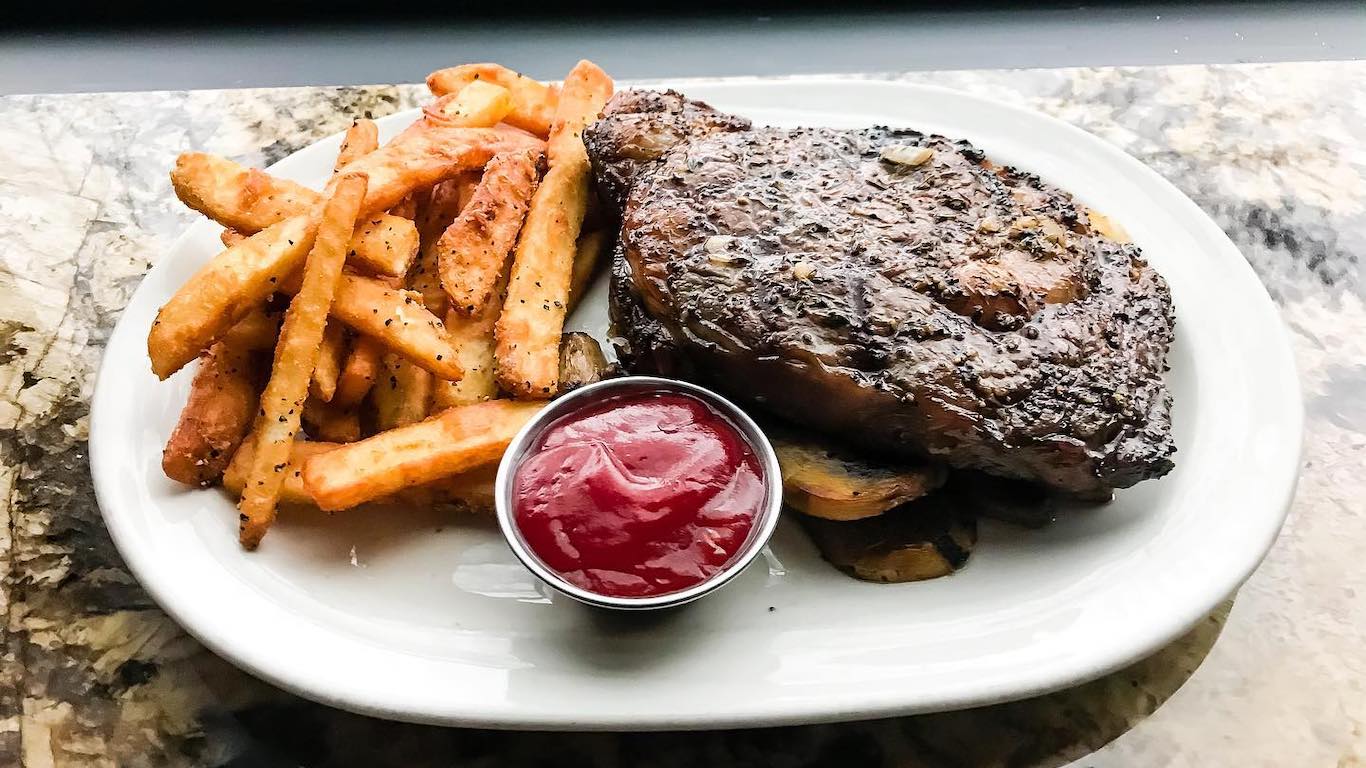
South Dakota: RED Steakhouse
> Location: Vermillion
Opened 10 years ago, RED aimed to provide what owners Jerad and Peggy Higman called, “an upscale experience with small town warmth.” One of the best-known restaurants in this college town in southeastern South Dakota, near the Nebraska border, closed, supposedly temporarily in March, but on Sept. 4, the Higmans announced, “with much regret” that it wouldn’t reopen.
[in-text-ad]
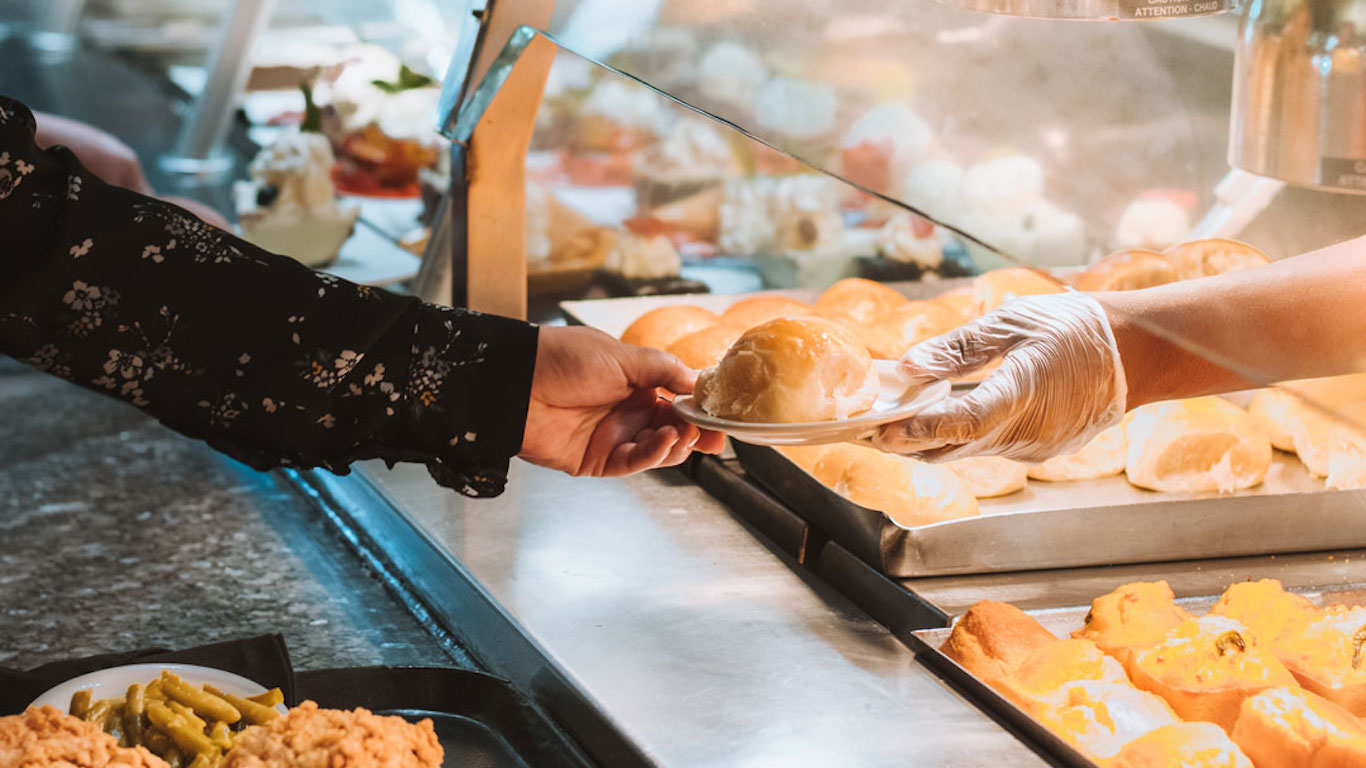
Texas: Luby’s
> Location: Various
This iconic 73-year-old Texas cafeteria chain, with some 60 locations currently open across the Lone Star State, announced on Sept. 8 that it was liquidating its assets. Generations of Texans have flocked to Luby’s for its chicken-fried steak and other comfort food (it was a particular family favorite for Sunday lunch). The chain responded to the emerging pandemic in March by temporarily closing restaurants and furloughing more than half its corporate employees. In June, Luby’s revealed that it was putting its restaurants up for sale, at least partially, due to the effects of COVID-19. The decision to shut the operation down was made to “maximize value for our stockholders, while also preserving the flexibility to pursue a sale of the company should a compelling offer that delivers superior value be made,” Luby’s CEO and president Christopher J. Pappas said in astatement. The company also owns the nationwide Fuddruckers burger chain, which is also being liquidated.
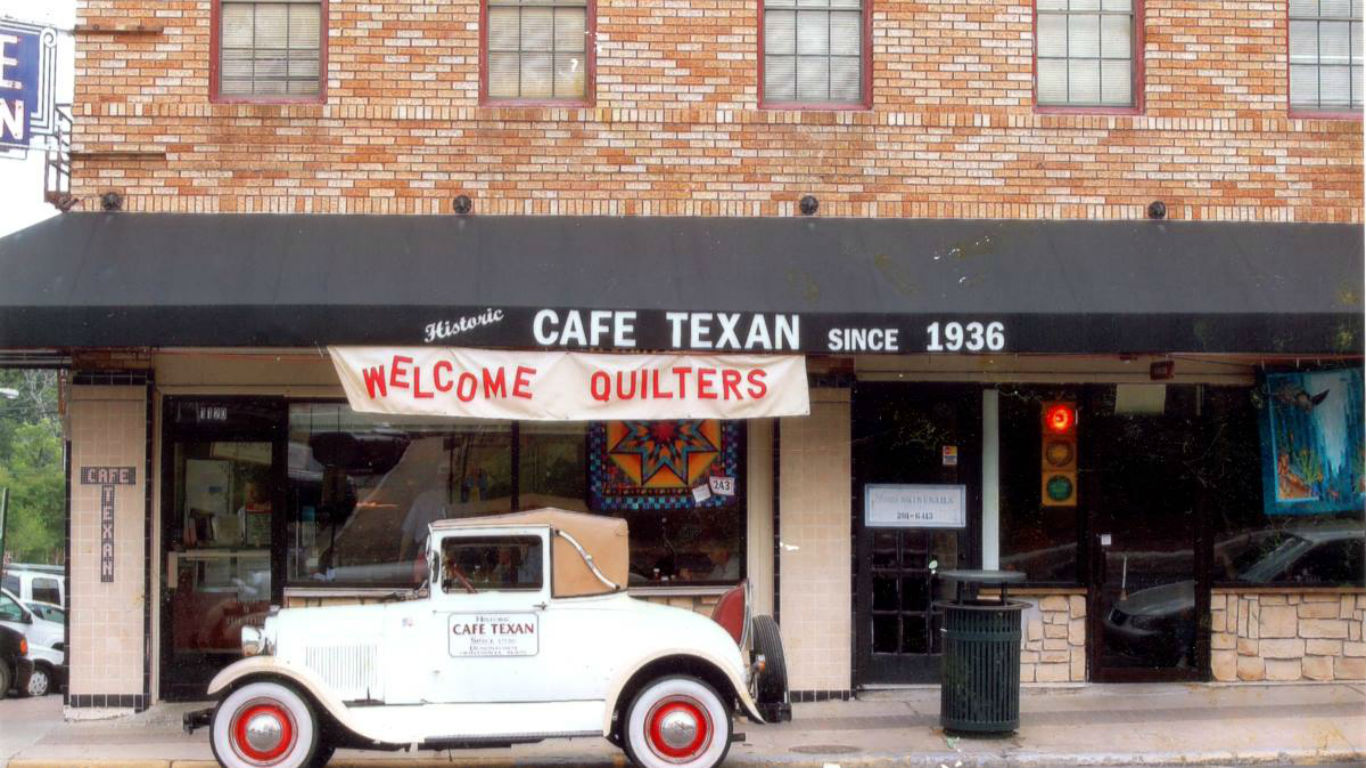
Texas: Cafe Texan
> Location: Huntsville
This iconic 83-year-old establishment north of Houston, said to have been the oldest café in Texas still in its original location, is gone for good. Owner John Strickland told The Huntsville Item that he had remained closed for months out of concern for the health of his customers, many of whom were seniors, and his staff. However, he said, “I had not intended to close it permanently.” When he realized that that would be necessary, he sold the building, which will apparently be turned into a museum.
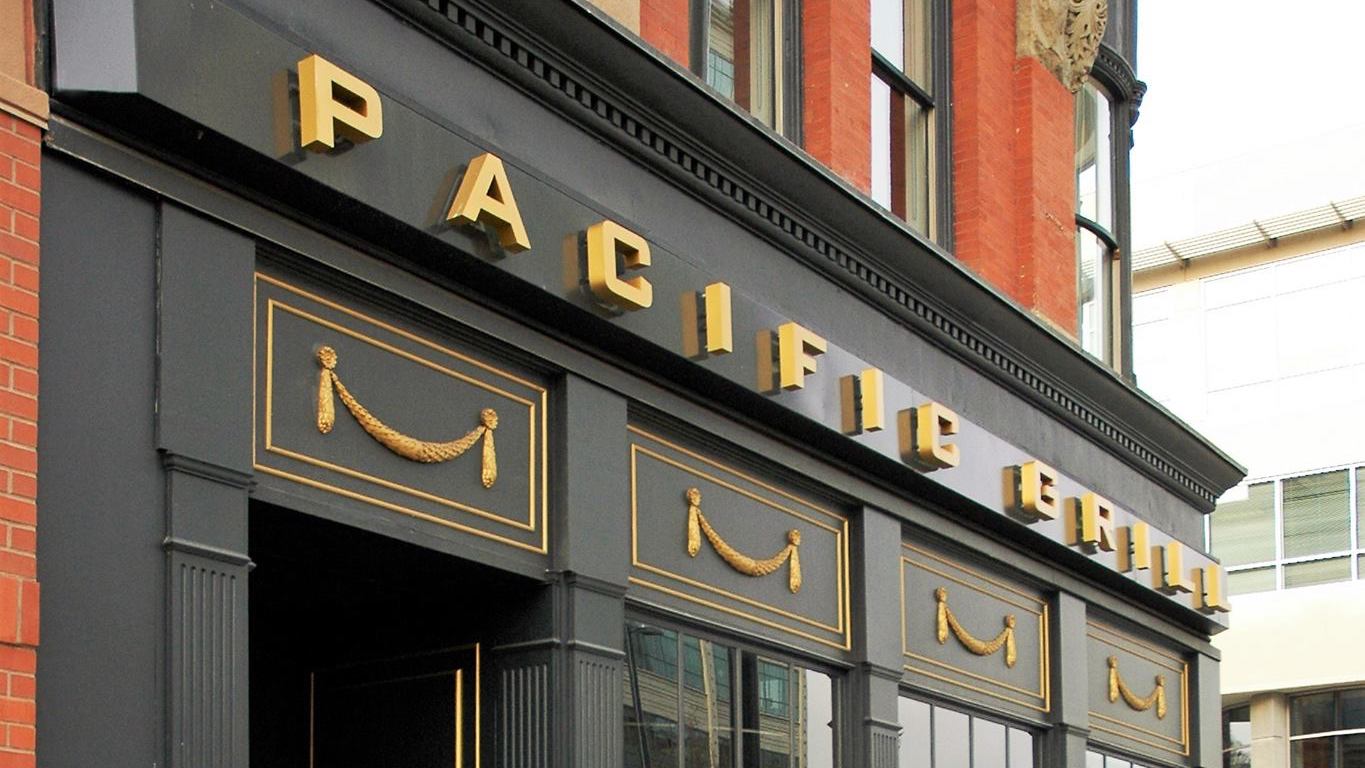
Washington: Pacific Grill
> Location: Tacoma
Tacoma’s News Tribune described Pacific Grill, which celebrated its 15th anniversary this year, as an “iconic restaurant that helped resurrect downtown Tacoma.” But it has now passed away itself. A press release issued Sept. 10 by co-owners Joe Hardwick Jr. and chef Gordon Naccarato blamed “the insurmountable impacts of the continuing Coronavirus and subsequent government-mandated shutdowns” for the restaurant’s demise.
[in-text-ad-2]
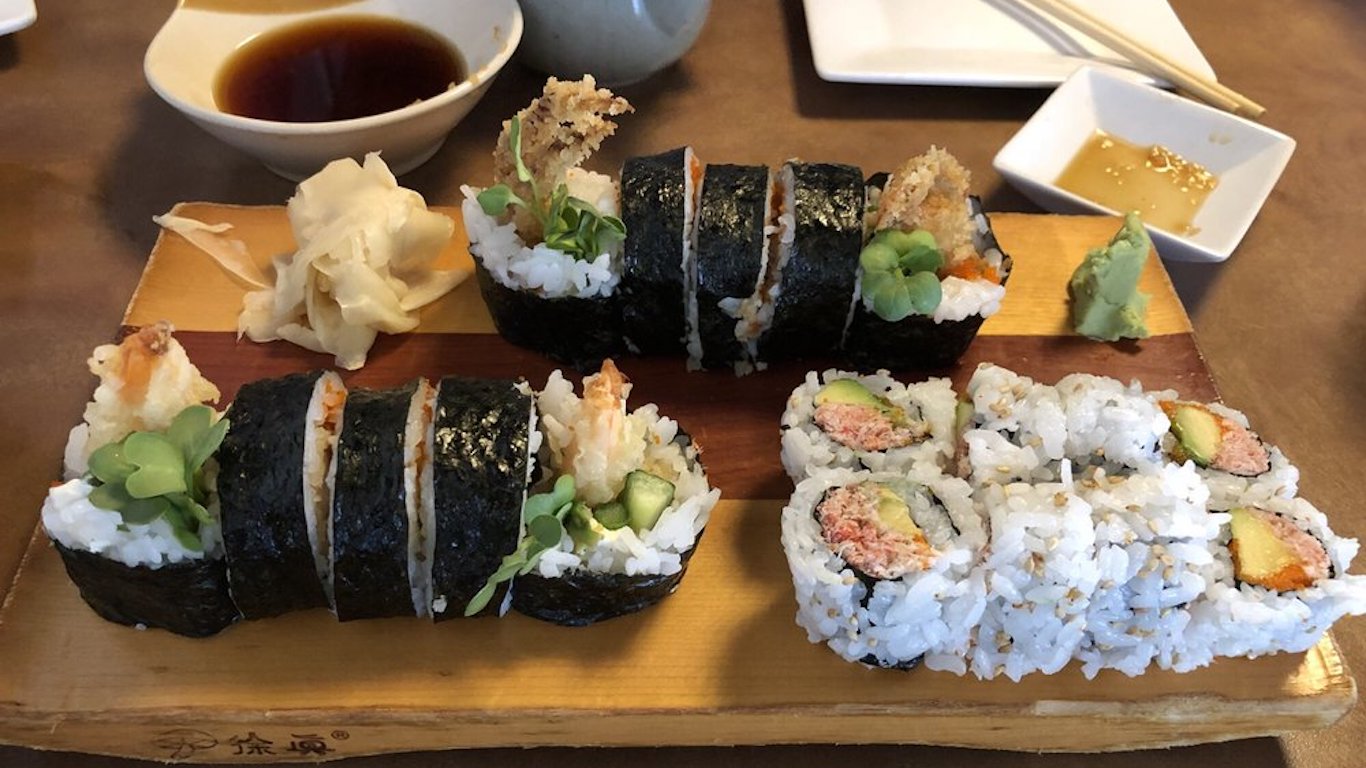
Washington: HaNa Sushi
> Location: Seattle
The longest-running business in Capitol Hill’s popular Broadway Alley mall, opened in 1989, HaNa was described on the Vanishing Seattle Facebook page as “relaxed, homey & down to earth, with a steady stream of regulars & folks who’ve been coming here for decades.” They won’t be coming any longer. Owner Aung Aung confirmed HaNa’s permanent demise to the Capitol Hill Seattle blog, saying “Now is a very hard time. I don’t know about Broadway right now.”
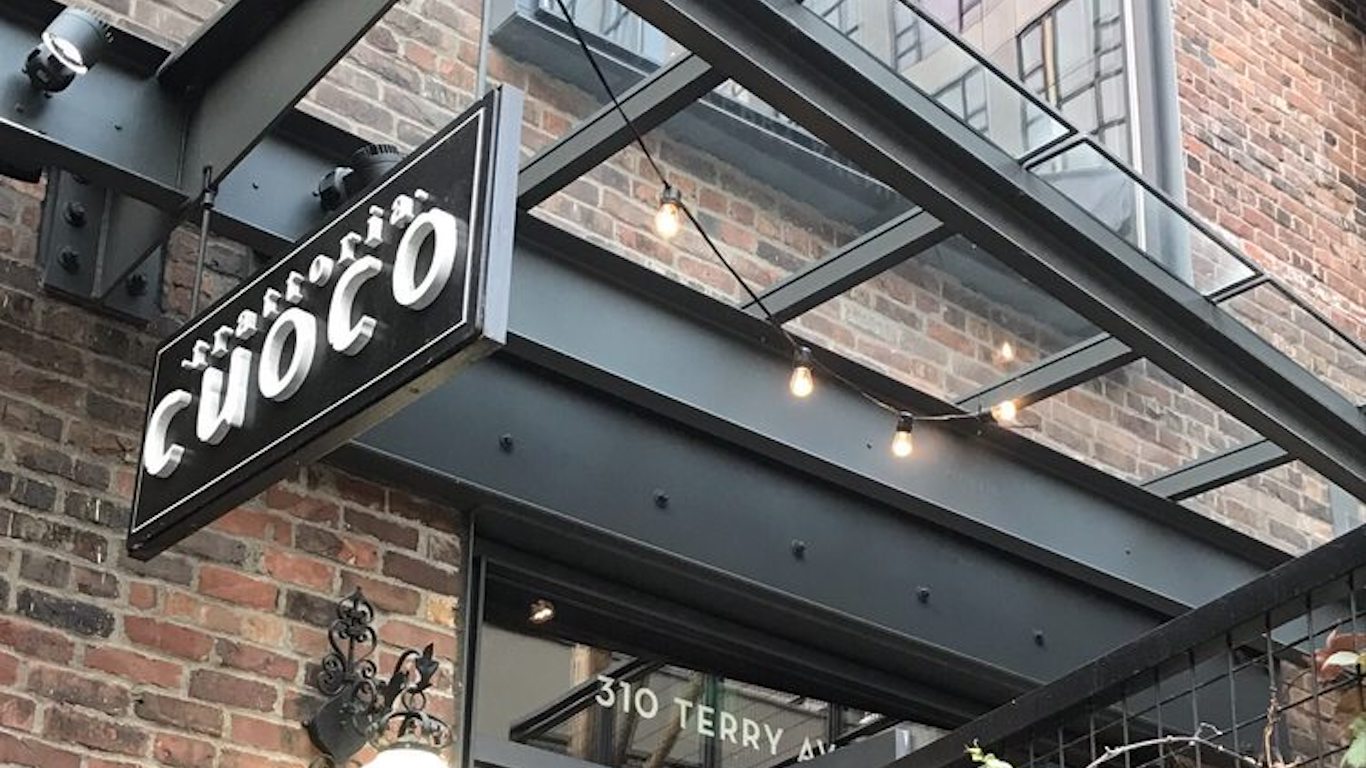
Washington: Trattoria Cuoco
> Location: Seattle
Prolific Seattle restaurateur Tom Douglas temporarily closed 12 of his 13 local establishments in mid-March over coronavirus concerns. Now, he has announced that he won’t reopen this one, a popular pasta place located in one of Amazon’s buildings in the South Lake Union neighborhood. He will also close his Brave Horse Tavern in the same complex. “Many factors weighed into the determination,” he said in a statement, “but in the end, it is the appropriate choice for our business.”
[in-text-ad]
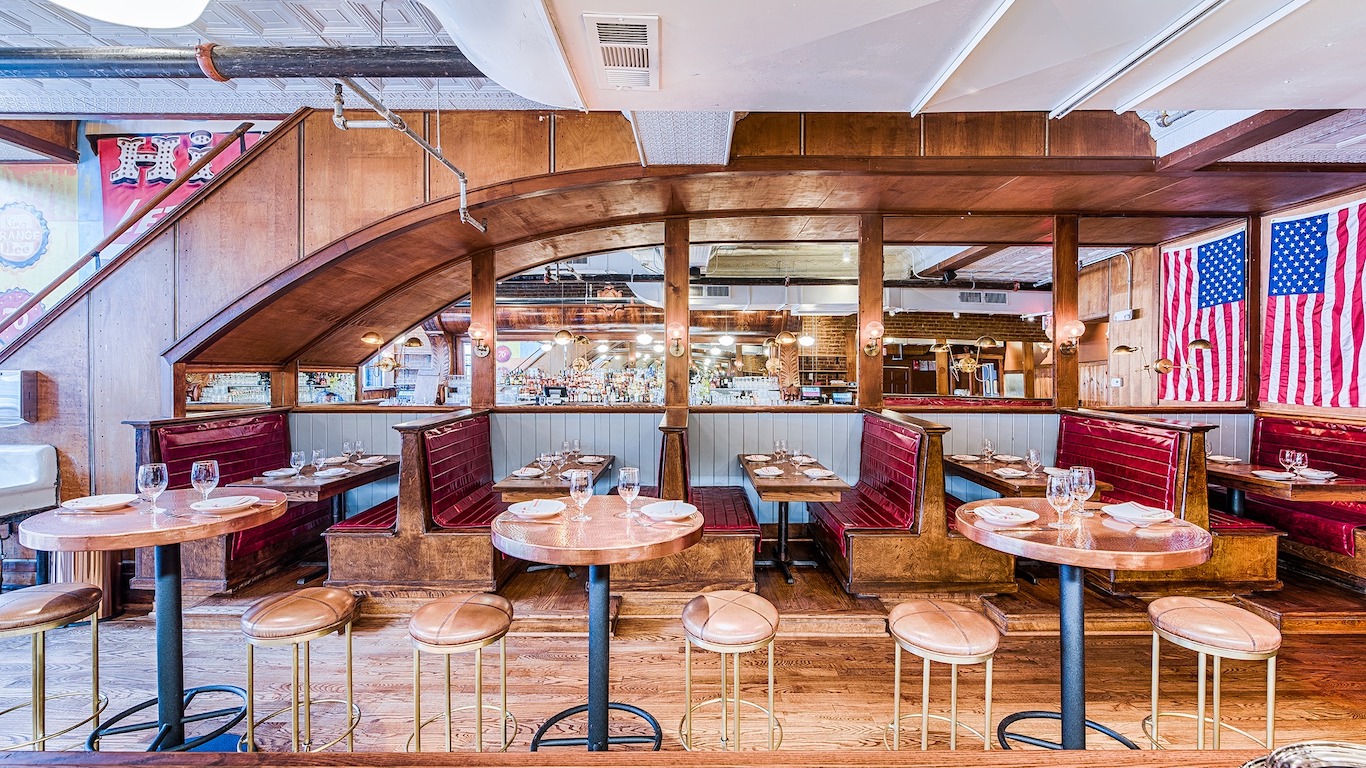
Washington, D.C.: America Eats Tavern by José Andrés
> Location: Washington D.C.
Peripatetic chef-restaurateur and humanitarian José Andrés opened the original America Eats in 2011 as a pop-up on the site of his Café Atlántico to coincide with an American food exhibition called “What’s Cooking, Uncle Sam?” at the National Archives. It moved from there to the suburb of Tysons Corner, Virginia, and then, two years ago, to Georgetown. In late June, a post on the restaurant’s Facebook page announced that “we will not be reopening in our current home, we look forward to revisiting this concept in the future.”
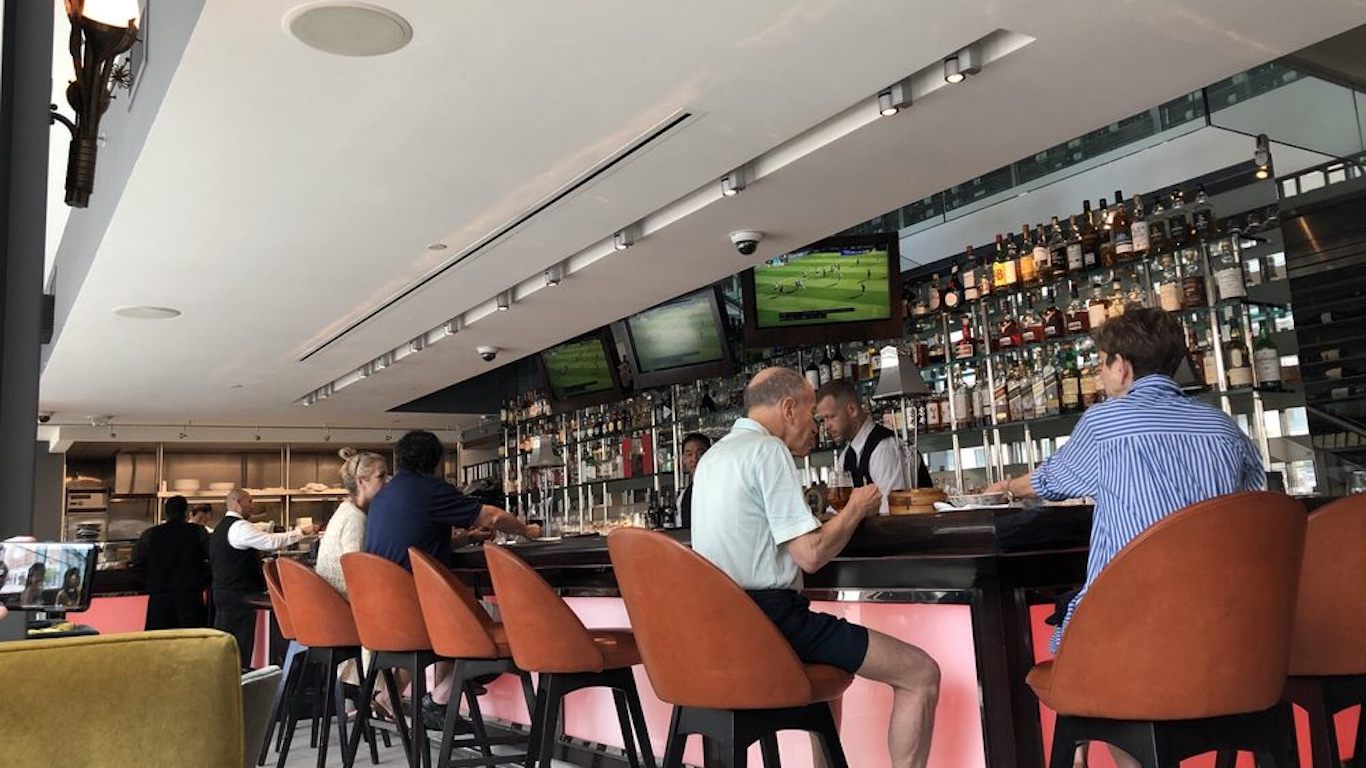
Washington, D.C.: The Source
> Location: Washington, D.C.
After 13 years in business, it’s curtains for Wolfgang Puck’s first restaurant in the nation’s capital. (He retains a subsequently launched branch of his CUT steakhouse in the city’s Rosewood Hotel). A modern Asian restaurant in the basement of what was once the Newseum — an institution devoted to journalism and the First Amendment that closed at the end of 2019– The Source is now permanently shuttered.
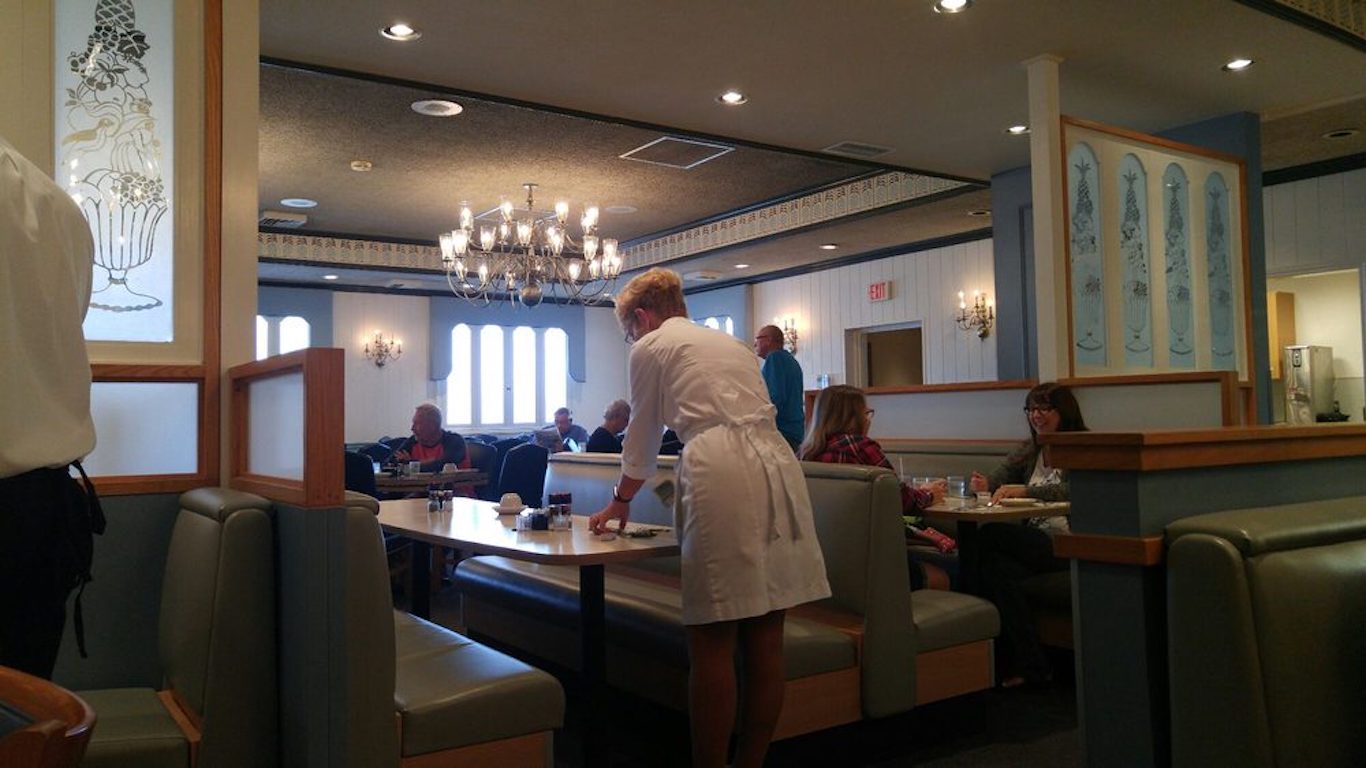
Wisconsin: Schreiner’s Restaurant
> Location: Fond du Lac
A popular family dining destination since 1938 in this city on Lake Winnebago in eastern Wisconsin, Schreiner’s announced in late May that it was closing its doors. The decision not to reopen, according to a statement on the restaurant website, “was not one that we made easily; unfortunately, it was unavoidable and our only real option given the economics associated with the current pandemic crisis.”
Are you ready for retirement? Planning for retirement can be overwhelming, that’s why it could be a good idea to speak to a fiduciary financial advisor about your goals today.
Start by taking this retirement quiz right here from SmartAsset that will match you with up to 3 financial advisors that serve your area and beyond in 5 minutes. Smart Asset is now matching over 50,000 people a month.
Click here now to get started.
Thank you for reading! Have some feedback for us?
Contact the 24/7 Wall St. editorial team.